#this is literally her song but only if you recontextualize it entirely
Text

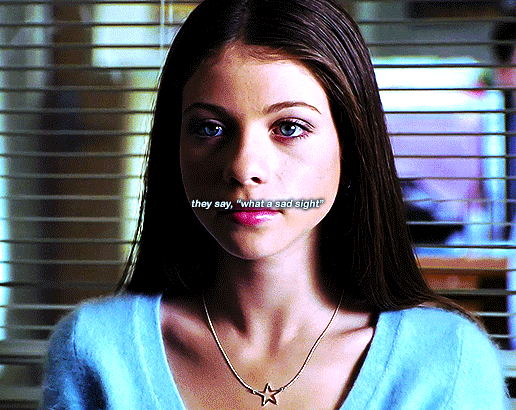

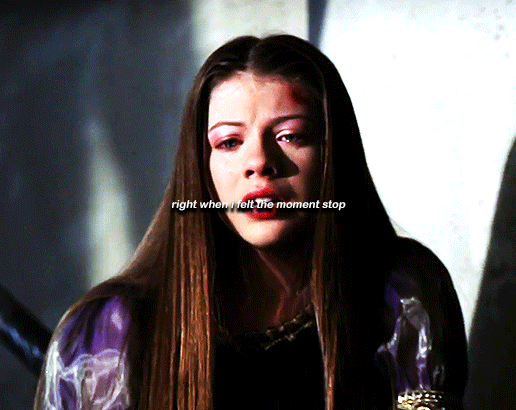
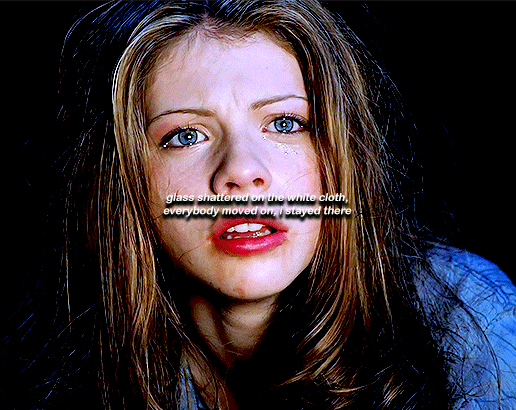
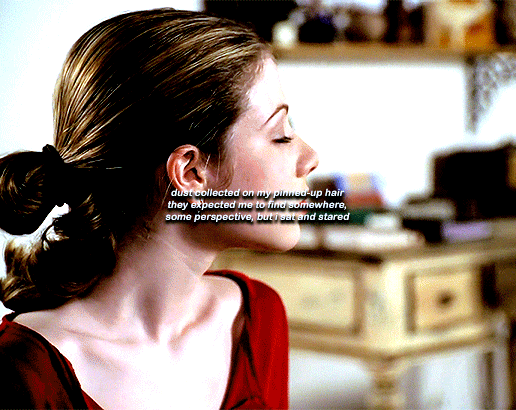
did you ever hear about the girl who got frozen? time went on for everybody else, she won't know it.
#btvsedit#btvs#buffy the vampire slayer#dawn summers#dawnsummersedit#gifs#gifsets that maybe only make sense in my head? who knows#anyway i made myself sad lol#image descriptions in the alt#* mine#this is literally her song but only if you recontextualize it entirely
135 notes
·
View notes
Text
Wild Kratts - Our Blue and Green World: Part 1: Review [Spoilers]
Welp, here it is, the Wild Kratts TV movie (not to be confused with the feature film they've been teasing us with since 2021). There's been a lot of hype around this special and season, especially with how much the latter was being hyped up during the hiatus. Let's see if the blue and green bros were able to deliver: Spoilers under the cut
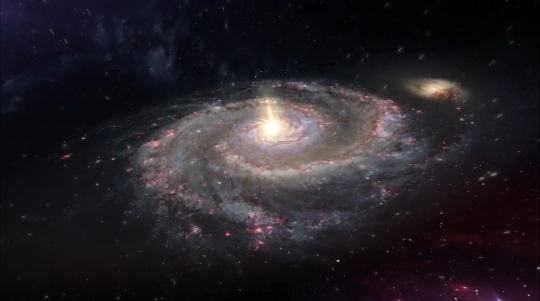
Well, this is certainly an attention grabber!

This entire live action intro is shot and edited like an animated Wild Kratts episode, it's glorious.
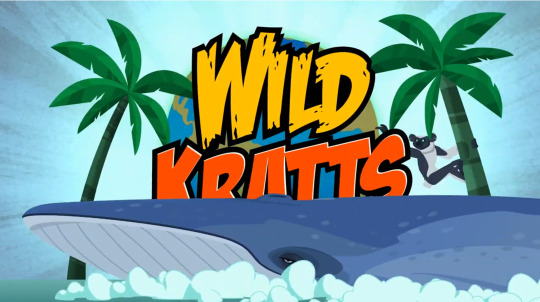
Woah, intro change!

They said the thing! They said the thing!
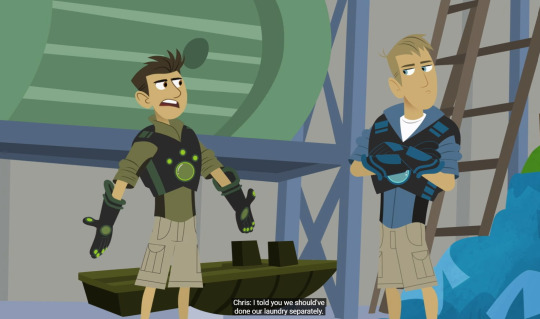
HELP THIS IS SO RELATABLE. Also, THE BOYS ARE FIGHTING
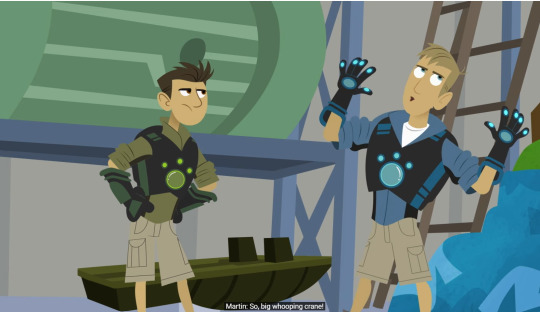
Lmao I don't think they do it very often, but using animals/nature in their insults is very creative.
Also, whooping crane episode when?
youtube
This entire song is mercifully short. Like most character sung songs in Wild Kratts, it's not good, but this at least is clever in its lyrics and its visuals. It feels like a Disney reference at best and I am content with that. I also ADORED seeing the Draco and Walrus Suit return again. It's arguably the best musical number in the series. No, that is not saying a lot.

MARTIN WHY ARE YOU THE ONE WHO'S MIFFED YOU NEARLY MUFASA'D YOUR LITTLE BROTHER
CHRIS WHY ARE YOU MILDLY INCONVENIENCED YOU GOT ACRAPHOBIA FALLING FROM THAT HEIGHT
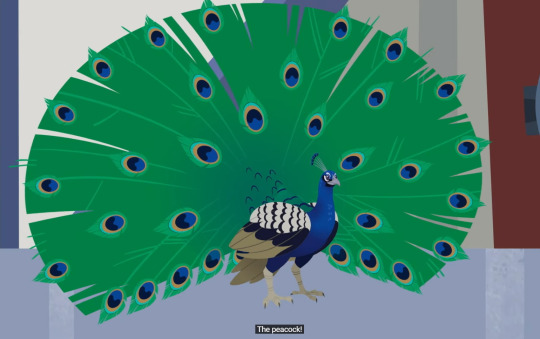
When I first saw the clip, I thought that they were going somewhere with this, like they'd activate Peacock Powers at the end when they recognized the compatibility and blue and green. But nope. Wasted potential is an understatement.
Also, where the fuck are they right now? In a previous shot there was Target the Chameleon, implying that they've been to Madagascar, but that is an Indian peafowl, and as far as I'm concerned, they don't live in Madagascar. Were they just having an off-day? These animals have little to nothing to do with the plot when they really shouldn't have, so I don't see why they couldn't have just shown a projector image or something.

Remember when I joked about the Wild Pony Power Suit returning in S7.... fuck you Apollo.
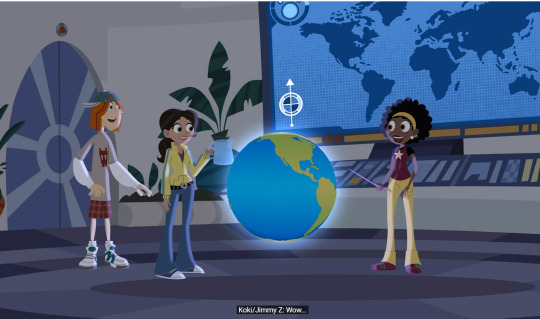
Man, they are eating it up with the animation here. It's hard to tell with screengrabs but man, is it fluid.

The first half of this episode is mixed. While it feels like the brothers are incredibly stubborn, it also does make sense for them to be this fixated on their favorites. So I can totally buy this. It could've been insufferable to watch, but it wasn't.
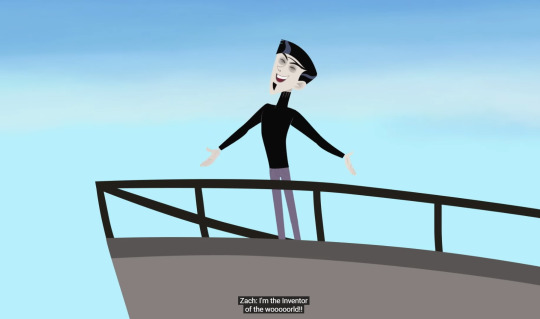

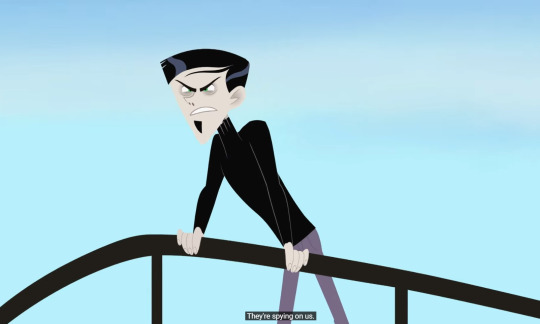
As if YOU haven't spied on them since the first time your dorito-headed ass showed up on screen
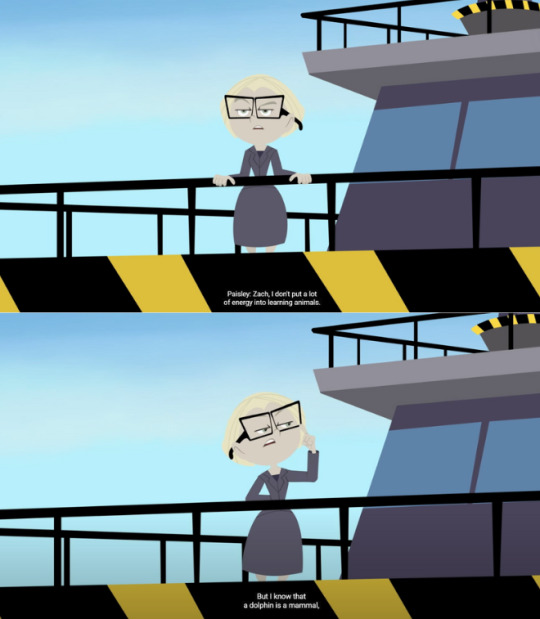
Did you find that funny? Because not only do they do a similar joke like that later on, but they follow through on that joke in the most unexpected way you will shit your pants when you first ingest it.

Oh my god if they make a Creature Power Suit off of that bird, I will take back any diss I've made, that is so beautiful.
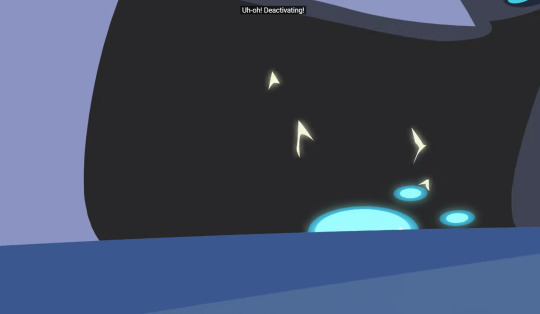
Good to know that Aviva put the button near the chest and not near the back.
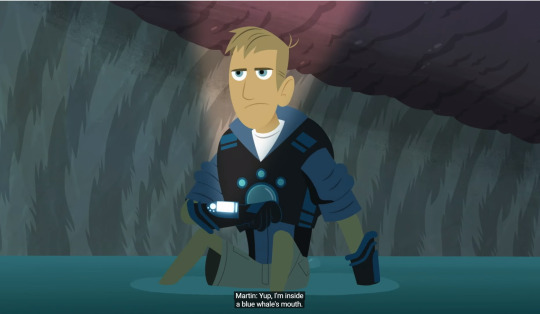
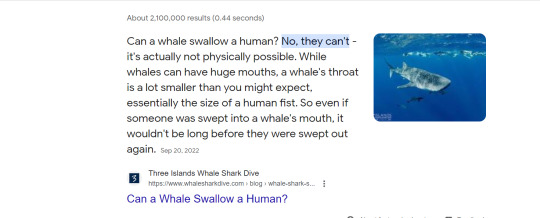
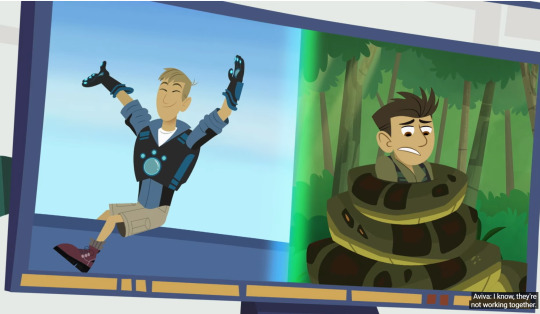
Maybe it's just me but this is kinda pushing it. Chris is literally getting his organs crushed, I think that should matter more than A) being right or B) trying to get 2 people to stop fighting.

I'm loving the callback and what this leads up to but ew, all this does is remind me about how ugly bright the color pallatte in S6. Really glad they fixed it in S7.
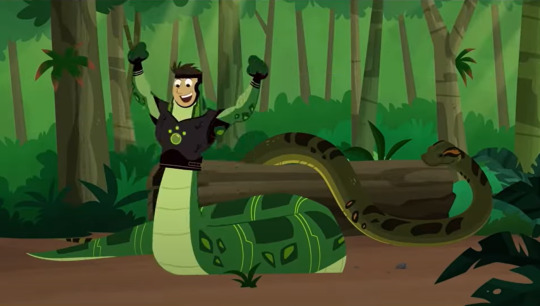
HELL FUCKING YES

This episode finds really unique ways of showing how the two different biomes are interconnected. It's like Rainforest Stew's (very brilliantly handled) message only to a larger degree. Kids can learn a lot from this.

I fucking love this episode, man.
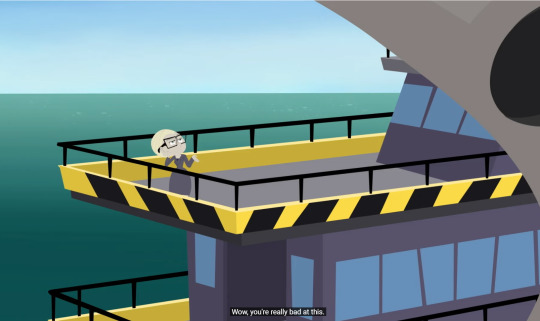
Honestly, the way they write Paisley in the first half of the episode is very in-line with her character. Most shows that do what this episode does has them be out-of-character as a set-up, but here, she's just roasting the fuck out of Zach. Once again, recontextualized entirely in the climax.

HOW THE FUCK DID HE GET TO MADAGASCAR FROM THE GODDAMN AMAZON IN ONE AFTERNOON THAT IS LIKE MORE THAN 1,000 MILES AWAY?? ARE ANACONDAS THAT FAST?????
Also, INDRIS!!!!! :D

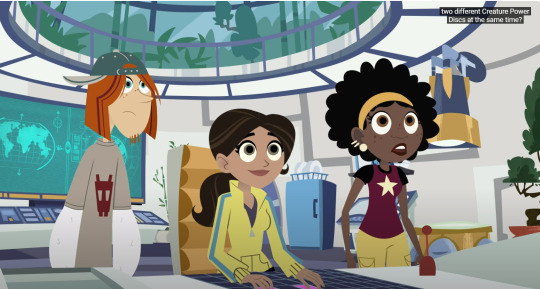
I was frankly expecting this to horribly backfire but spoilers, it doesn't. This actually winds up working. Common Aviva W.
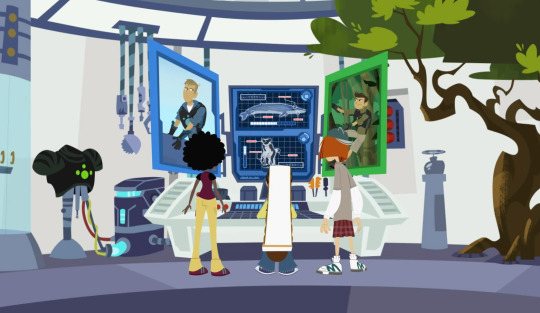
To be continued.... will the blue and green rivalry end? Will one prove superior over another? And will they be able to stop Zach and Paisley and save the planet earth? And will this change the adventures of the Wild Kratts team forever? Stay tuned for part 2!
Pros:
The live action segments.
The animation of the earth's model.
The musical number not being ass.
Paisely's catty behavior.
The Anaconda Suit.
The inventive ways they show how the stability of the Earth is complex. There are a lot of ways it functions and thus a lot of ways it needs to survive
The comedy.
Cons:
The villains do not do anything until the second half of this episode. In fact, they're left completely in the backdrop. I expected them to make their prescence known and for Aviva to invent the discs to get them together for the SAKE of fighting the villains. But no. It makes the stakes feel hollow, which is the opposite of what they should be gunning for in an hour long special that they hype the shit out of.
CONCLUSION:
It was an "okay" set-up. It did live up to some of the hype it had, but not all of it. Honestly if it wasn't for the second half of this episode, this movie would be mediocre or slightly above average, but no. They do pick themselves off the ground and... they do jump the shark. But we'll get to that next time
#spoilers#season 7 spoilers#wild kratts#wild kratts season 7#paisley paver#zach varmitech#kratt brothers#2d kratt brothers#2d martin kratt#2d chris kratt#I lost sleep over this episode istg#Youtube
54 notes
·
View notes
Note
i'm back! holds out hands. 🌠🎶and/or❓for chevon, perhaps?
hello again!!
ty for the questions, glad you like Chevon <3 as usual, im gonna go deranged rambling about this, so everything is put under the cut to avoid clogging everyone's dash

🌠: What is their Afflatus? Why are they associated with that Afflatus?

(I posted these profiles for all members in the spina venatores masterpost if anyone wants to check)
Chevon is a Star arcanist - this thread here (consider giving it a read, its very interesting! a few mutuals of mine wrote it!) talks about how Star arcanists either hide or show themselves to the world, but I like to think that their shared quality that makes them STAR arcanists instead of any other type of Afflatus is that dreamy-like vibe they have going on
They're all characters who have their eyes set on really big goals, who can easily be described as peculiar or quirky because they don't seem quite "down to earth" - I just woke up so I don't know how to explain it in detail but!! They're dreamy-like but very strong in their convictions; Regulus' passion for music, living the life of a radio pirate which is a whole adventure on its own; Baby Blue's love for Wonderland, to the point where she rejects reality to live the life of her dreams; Matilda, who wants nothing more than to be the best, to the point where it literally looks like she's living in a different genre of game altogether than the rest of characters like Sonetto or Vertin...
Star arcanists, to me, are stars themselves - they burn bright and sometimes their fire may fade out, but there's no denying that they all lead extremely unique lives, that they all feel so very far away because of their convictions, morals or goals. There ARE aspects of concealing and hiding like the thread talks about, but I feel like that could be recontextualized better as a disconnect between their reality and their ideal way of life.
I'll probably regurgitate and rewrite this better in my writing blog, but characters like Blonney, Charlie and Voyager - there's that disconnect. Blonney, who pretended to be someone she's not in more ways than one but whose passion for horror was the indirect catalyst for the WHOLE event in 1.2. Charlie, who does NOT have the heart nor confidence for theatre, but who becomes an entirely different person on stage. Voyager, who is an actual fucking alien, the disconnect can't get any more literal with her.
So in the context of Chevon being a Star arcanist, I like to think that all of this applies!
His whole thing is that the disconnect between his body and his heart, the way he was born as and the way he feels like, are unbearable. He's one huge metaphor for being transgender, but his character focuses more on the dysmorphia rather than the dysphoria! The feeling of massive dissatisfaction with one's body, not due gender, but because none of it matches the idea in your head
This is a lot of word vomit to say that Chevon developed an arcanum that could allow him NOT to change his body and shapeshift like Veal does, BUT to transfer his consciousness into someone else's body. That's why his medium is "Rebirth".
He's a Star arcanist because he's fully convinced that there is a way to preserve life in a perfect state between life and death, as to never die and never truly live. He has this dreamy quality to him, like he knows something you don't but is very polite about it, a gentle and a little whimsical vibe that clearly tells you this guy is not to be trusted, but you'll take the risk anyway because of the allure and the softness he has. But that's only because of his appearance, the most recent body that he stole - because his personality is just as rotten as the rest of Spinas.
🎶: What’s a song you associate with them? (And why?)
SO FAR I ONLY HAVE... TWO PLAYLISTS, one for Venison and another for the general vibe of Spina Venatores - BUT. BUT. I know that the songs I'll assign to Chevon need to have this very specific vibe to them
One that comes to mind right away is "Flood on the Floor - Purity Ring" - it has that VIBE and the lyrics vaguely remind me of Chevon's dynamic with Necrologist, the one person who had to constantly "bury" him over and over as he perfected his body-hopping arcanum. I like to think that a LOT of the tombstones in her museum are from his many different, short-lived identities
❓: Free space! Make up any question you want, or just say a fun fact about them!
Ohh, I'd like to talk about Chevon's relationship with the other members of Spina Venatores but I think that would take. SO LONG. hmm. I'll settle for a fun fact then!
All members of Spina Venatores have ONE single detail that is never disclosed nor that they ever want to remember, which is essentially the root of their entire character - for Venison, it's their full birth name. For Mutton, is the first woman she loved and married. For Poultry, it's her roots and life as a human. For Veal, it's their original voice.
For Chevon, it's his original appearance - his "first life" so to speak, everything related to it. His gender, his skin color, his hair, his eyes, all of it is lost.
This single detail is something that all members have willingly discarded, forgot or avoid even thinking about to extreme measures, it's the root of their denial. It's also the one thing that each character related to them (Pavia for Venison, Schneider's sister for Mutton, Necrologist for Mutton, etc) knows.
When it comes to Chevon's original life and body, Necrologist is the last person alive who knows how he used to look. She was there when they took his lifeless body and she designed the tombstone for him herself. I like to think that she spend many, many months waiting to hear from his spirit, his last regrets and final wishes, but he never appeared - not sure how it goes from here, or how this affects their relationship in detail, but yeah! <3
12 notes
·
View notes
Text
Random Thoughts on Persona 4 Golden - Part 2
(for context, I'm up to 11/13 and I just rescued [SPOILER])
<<< Part 1
I like how there are a lot of moments where the Investigation Team hangs out together outside of the context of the main story, like the fireworks scene and the concert performance. It really makes them feel like true friends.
Not my favorite fishing minigame in the world, but it's serviceable.
You ever drink coffee so good it knocks you the fuck out?
The Death Social Link may be in my personal running for one of the best Social Links that isn't a party member or side character.
I was honestly kinda blindsided by Mr. Morooka's murder.
They did it. They made a character who's both a bear and a twink.
Mitsuo's dungeon and boss fight were cool as fuck, especially with the 8-bit remix of I'll Face Myself. I'm a sucker for that retro aesthetic.
Since I played Persona 3 Portable immediately before this game, I loved the Tatsumi Port Island field trip. It was really nice to see something familiar. Chihiro shows up and briefly mentions Mitsuru, Club Escapade plays the opening song for Persona 3 FES, and the gang even stays in the hotel where SEES fought one of the boss Shadows. Wonderful.
Speaking of Club Escapade, how did Rise and Yukiko get drunk again? Naoto mentions that the drinks were non-alcoholic, so were they just acting drunk?
...They did Naoto so dirty. That part where she said that she "shouldn't strive to live as a man" gave me the ick. Her dungeon literally has a Transition Surgery Machine, and she continuously wishes that she was born a guy. Like I said in my last post, the story feels like if a queerphobe and a queer person were fighting over who got to write it. It would've been nice if Naoto's arc revolved around accepting that she was transmasc, or better yet, rejecting the concept of gender entirely.
Speaking of Naoto, she's honestly kinda OP. I heard that she was buffed from the original Persona 4.
The Cultural Festival was... holy shit, where do I begin. The whole beauty pageant segment was incredibly awkward (except for the bit where Teddie stole the show, that was pretty based of him), and the hot springs scene was even worse than the one in Persona 3. And don't even get me started on the scene immediately after.
The scene on the night of 11/1 was awesome. The suspense of Nanako's kidnapping was elevated by how likable she is, especially if you finished her Social Link beforehand (which I did). I was also wondering when Dojima would find out about the protagonist's involvement.
It's probably been said many times before, but WE WERE FUCKING ROBBED. As I found out, there were unused voice lines for Yosuke (in both Japanese and English) which imply that he was going to be a romance option, but it was cut in late development. Not only would it have been nice to have an actual bromance in a Persona game, this would've been a great character moment for Yosuke; it would've recontextualized his homophobic remarks as the result of denying his own feelings, fitting perfectly with the game's intended themes.
(Also, happy launch day to Persona 3 Reload. This is a Persona 4 post, but it feels weird not to acknowledge it.)
3 notes
·
View notes
Text
//endwalker level 90 dungeon spoilers
I have like. mixed feelings about The Dead Ends and it's largely tied to my mixed feelings about how they used Close the Distance in Ultima Thule. For starters, though, I do have to mention that Ultima Thule is straight up my favorite thing they've done plot-wise. Literally no competition, this thing made me cry so fucking hard and fit in with the thematic content of Endwalker so well that even though it does the easily messed up trope of "killing everyone off at the end" it makes every single death have purpose to it so it works in the end. It works so goddamn well. Ough.
The music, especially, works really well in Ultima Thule. I especially liked the way that it built up with every sacrifice, like your allies are the one weaving the song together. It was a really cool way of portraying the power of teamwork, collective action, and friendship in a way that was a little more abstract. And it fits thematically with the final boss too, being the "Endsinger" because "Close the Distance" is now recontextualized as a counter to the Endsinger. A song of hope to counter the song of the end, The Answer/Response to the Endsinger's Call, etc.
So why. Why. Did they decide to make a completely separate track for The Dead Ends. That dungeon can essentially be considered the perfect manifestation of Meteion's lament over the inevitable heat death of the universe and it would make *so* much fucking sense to have Close the Distance in its original form playing the entire time, like a victory parade as you beat back her suicidal nihilism with a song of bittersweet hope for an uncertain future. That arrangement doesn't count, it doesn't have any of the impact of the original song and it would've been so cool to have that song smoothly transition from the field of Ultima Thule and into the dungeon.
To me at least, it kind of feels like they were trying to recapture the magic of Amaurot with that last dungeon, what with the sweeping orchestral remix of the final area's music. But the reason why it worked with Amaurot is because that song hits the tone of that dungeon perfectly. It's desperate, it's epic, it is filled with the overwhelming sadness and longing for the old Amaurot and it makes me emotional every time I manage to get that dungeon in roulette. With the Dead Ends, I don't get any of that. I just get "oh it's an orchestral remix of Close the Distance." It's hopeful, yes, it's filled with a sense of purpose, but it doesn't hit the same notes as the original.
And so imagine how much more annoyed I was when I found out that the music persisted after clearing the main quest. Because to me, at least, the music staying there even after everyone's back and safe and sound and everything's done with just sort of cheapens the impact of the song. It no longer feels special, it just becomes "the overworld theme of Ultima Thule" not "the song that you and your allies sacrificed so much to create." I would've much preferred if it reverted to that first, quiet, muffled version that plays when you first land. The base echoes that Thancred gives you are now recontextualized as the last remaining echoes of Your Song as it slowly fades, having fulfilled its purpose. The painful memories of what happened there are slowly dulling as you celebrate your victory. On a certain level, they'll always stay with you, but they won't stay at the forefront of your memory. The pain of losing Thancred, Estinien, Y'shtola and Urianger, G'raha, and Alphinaud and Alisaie, even for a few moments, will forever stay but only as echoes, reminding you how important it is to cherish your friends and allies.
And if you ever feel like listening to the entire song again, just queue up for The Dead Ends. Refute the song of the end with a song of bittersweet hope. As many times as it takes to keep those lingering thoughts that "nothing matters" at bay.
Anyways, that's enough rambling from me. The thematic content of Endwalker is very special to me because I constantly and consistently have small bouts of existential terror and angst, and I can't even begin to express how gratifying it is to see the philosophy that I had developed to counteract it presented in such a manner in the game. Fighting those kinds of thoughts and any other sort of hardships and challenges that come your way are, I think, a never-ending battle and I think that the game could've just made a few adjustments to better reflect that. I am still very pleased with how it's currently presented.
I get the depression but also the serotonin lol. The best combo.
2 notes
·
View notes
Text
Mouth Dreams analysis
MOUTH DREAMS
I dont even need to introduce to you the marvelous mash up works of neil cicierega’s mouth trilogy (now quadrilogy i guess). We all know them, we all love them and we all have our own interpretations of what they mean. For some merely musical shitposting, for others clever experimentation laden with phrases, leivmotifs and themes repeating here and there, and for many a deep and rich bounty of lore, hidden messages, subtextual stories and underlying narratives implied across multiple variations of all star, hidden in the meta data and uncovered only after doing spectrographic analysis on the soundwaves of the songs after being played at x0.000003 times the speed. It is usually understood that all the albums together form a unique and rich tapestry, a coherent whole that can be understood in its totality. Im not here to do that.
I came up with my own interpretation of what Mouth Dreams can be read as, independent from the other albums. Think of it as me presenting this entry as the soundtrack of a musical with its own self contained story. It is the interpretation that i chose to go by and i hope its understood the brilliance of these albums lies on how weird and vague and open ended they are such that any number of different readings can be extracted from them. So lets see the one i extracted, without further ado, lets begin.
Yahoo
It is an out of context, in media res, start for the whole story. We hear a voice, echoing in the void, yelling at the top of its lungs, reaching desperately for human conection. One form of looking at this song is that the voice only receives an empty response from its own echoes, but i dont take it like that. The song is too sublime and too beautiful for these, the notes soaring too high, the desperate plead is being answered. Someone is listening to the plead and answering right back, harmonizing.
This whole album is in a way that howl, reaching to others, and we the audience are answering back, listening. But also on another level, this whole album is the protagonist telling the tragic story of his own life to some sympathetic figure who wants to help, perhaps a therapist, perhaps a friend, perhaps a partner, we’ll see. And as the yelling subsides the story starts proper.
Mouth dreams (intro)
We are being slowly taken into the story, entering the psyche of the main character, entering their subconscious, their dreams, their memories and therefore, their past. We’ll see what life they led and how they ended up where they are now and we start right at his infancy with….
Spongerock
Spongebob is a great indicator that we are seeing this person’s early childhood. They seem to be a rambunctious and energetic child. Cheerful and enthusiastic, yet there seems to be some underlying aggression there. The music is a bit to strong, and in comes freddy mercury berating the poor kid “you’ve got mud on your face, you big disgrace”. Who is this entity being so hostile to a poor kid? What lies beneath that image of a happy kid? We are about to see on the next song.
Just a baby
This is where trouble starts. We are treated to a dramatic song about a poor young baby who seems to be having a pretty sad life. Justin bieber, former teen idol, keeps lamenting about the poor baby being stuck in baby jail. This song is very much about loss of innocence. A shadowy figure of the mother is introduced who tells the protagonist to be a good boy. And almost at the end of the song we get a suggestion of what’s so wrong on this poor kid’s life. His mother apparently “shot a man in reno”. We dont know if this is a literal thing the mother did or if this is a metaphor for the mother doing something horrible, commiting some crime, harming someone in some way. While its not clarified we see strong hints of what the mother could have done in the next song
Superkiller
As we worry what may be so wrong with this kid’s mother we come across the title for this song, ominous. Now in the original Psycho killer the killer was clearly the singer, but in here the song is twisted and turned a bit, recontextualized by the beats of “cant touch this”. It seems like this time is the singer the one who doesnt want to be touched by some nefarious figure (the mother? Is the mother a psycho killer?) maybe the kid saw the mother killing people “i dont like people when they’re on fire”. whatever the case might be the kid is clearly strung up and under a lot of stress and we are introduced to the first hint of the insomnia that will plague this persons life who cant sleep because “my bed’s on fire”. The horrible situation in which this kid is living is taking a severe toll on their mental health. How is he going to cope with this?
Get happy
I think everyone can agree that “come on get happy” is incredibly unnerving when mindlessly repeated over and over. A first read might suggest the kid is forced to put on a happy face, to pretend that there is nothing wrong going on with their life. But as the song progresses it could also be interpreted as the kid being tempted to find refuge from the horror by unsavory methods “get happy” as in acquire happiness of a forced and artificial kind, perhaps drugs. But also “we’ll make you happy”. The kid is not running into a rabbit hole on their own, they are being invited. Its possible that the kid is being seduced by a bad crowd to move into seedy circles as an escape from their life.
Ribs
In here we see the kid, probably a young teenager by this point as suggested by the use of marylin manson in this song, falling deep into debauchery. The specific kind is not needed to know, it could be drugs, it could be sexual experimentation, it could be criminality. Point is this is unhealthy and dangerous and depraved, emphasized by the title of the song “ribs” as a reference to the rumor that marilyn manson removed two of his ribs in order to perform autofellatio. Whatever the case it clearly works, the song is actually a great bop, energetic and upbeat, the kid is content with the situation, at least for a while…
My mouth
This song is the coming down from the high. In here we see at full blast how the life of depravity on the one side and their situation at home on the other have turned the character into a hardcore insomniac, their health is severy compromised “My eyes feel like they're gonna bleed
Dried up and bulging out my skull”. Another way to read this song is as we momentarily cutting back to the present. After all, what we have been seeing until now has been dreams/memories and this is a short look at the wreck that the person is as a grown up, stirring awake from their memories and trying desperately to forget or to go back to sleep where they can have a reprieve. As evidenced by the next song
Aerolong
I dont wanna miss a thing is completely turned on its head. As the lyrics clearly demonstrate is the protagonist who cant go to sleep being chased by their memories, specifically the memories of their mother “I don't miss you, babe, and I do want to miss a thing”. As the person is tossing and turning on their bed, unable to sleep they talk about how they dont miss their mother at all and they want to “miss” her as in they want to forget her.
Sleepin’
The character is constantly speaking about how they are “sleeping with their clothes on” this is due to them falling asleep during their everyday life because of their lack of sleep every night, this person is barely functional, their sleep schedule is broken. Also since this song is about the character actually sleeping it also works as a bridge back into their dreams and so into their past.
Aammoorree
Is another vignette about the character sinking into disreputable states in order to escape their shitty situation as a teenager, this time very specifically about being completely drunk and perhaps experiencing romance for the first time. The character is probably at a club or a party, drunkenly hitting on someone, though chances are without much success as the song becomes increasingly more incoherent and we go into a full black out. This gets bad enough that the person finally has to take a look and….
Where is my mom
….stop. It is highly suggestive that in the album the “stop” is part of this song rather than the last one. The person is not only stopping their current alcoholic binge. They are stopping the entire situation and taking a good look at their life, finally confronting face to face what is happening and why it is so wrong. Now “stacy’s mom” was always kind of an inappropriate song due to it being about a child having a crush on their friend’s mom, as sung by an adult. But as it is recontextualized by the instruments of “where is my mind” it takes on a much darker tone. The romantic words are still there but now with a sinister bent. This time the main character asks their friend if they can go and take refuge at their house and when they ask if the mom is going to be there they sound more scared than eager, specially suggested by the way he seems to be stammering the word “pool”, they are nervous and terrified. They also talk about stacy’s mom as “all they want and been waiting for so long”, probably because all they want is a normal, loving mother. Presumably this song is about the main character finally talking about what is going on at his house with a friend, confessing and that confession gives way to realization
Fredhammer
Then realization gives way to anger. During this whole song we see the teenage character finally grasping how fucked up the whole situation is and he gets progressively more worked up with each successive aggravation “Why did it take so long? Why (hoo!), did I wait so long, huh?
Why??? To figure it out, but I did it (huh?)”. From this we transition to the kid actually confronting their mom face to face. The line “So you can take that cookie And stick it up your (yeah!)” can be read as the mother trying to pretend there is nothing wrong or pacifying the kid with empty gestures of motherhood, by making cookies and the kid spitting that back into their face. The kid gets more and more worked up through the song as we seamlessly transition to the next one.
Limp Wicket
This song is pure incoherent chaos but something very important can be rescued out of the chaos. This song uses the lyrics from the “ewok celebration” which is presumably the song the ewoks sing in return of the jedi after the empire was defeated. So in a way is the kid celebrating that he finally confronted their mother and presumably defeated her. This is emphazised by the recurrence of the lyrics ““So you can take that cookie”. Is not specified how the mother is defeated, maybe social services or the police get involved, maybe the kid runs away, either way this song is triumphant. The evil entity that stole his childhood and innocence has been defeated.
Cannibals
This song is slightly different from the rest. It works as a form of victory lap after the defeat of the mother figure, but also as an intermission since it lies smack dab in the middle of the album, and finally as a transitionary song from childhood to adulthood. Is a time skip, we get to see the person grow up in fast forward as the THX song hits its crescendo. This song also makes it perfectly clear that, even though she was left behind, the mental scars that the mother left are still there and still fresh and still very much stopping them from sleeping “She drives me crazy
And I can't help myself”.
The outsiders
This works as a way to recontextualize us in the life of the character as an adult. Our so called “feature presentation”. It is not altogether clear who these people being introduced are. They could be the people who came to mean something in this persons life as they grew up after trauma, probably multiple foster homes, social workers, friends, bosses, co workers, etc. the fact that they are being enumerated dissapasionatly could indicate how most of his social relationships were basically a meaningless blur for him who grew up socially distant due to trauma. It could also represent the multiple roles that our character was forced to take as they grew up and the multiple things that went through his mind or meant something. There is clearly some desperate attempts to recapture their lost childhood as figures such as “inspector gadget” or “the ninja turtles part three” are named. The song is a fast montage of views and places. That prepares us for the next song.
Johnny
We finally zoom in and take a good look at our main character as an adult. A sad, pathetic figure, hurt and lonely, possibly not very well liked and certainly not respected as we hear boos all around. Despite all this the character is clearly committing themselves to be a good person, to not hurt others like he was hurt and specifically to not commit the same crimes that their mother commited.
Closerflies & Nightmovin
These two songs might as well work as a single piece since they are both more or less about the same thing. We reiterate how this person has been turned into an insomniac due to the trauma that they experienced as a child “When I'm far too tired to fall asleep”. They are delirious and barely coherent, possibly hallucinating as they think about their life in bed. This is clearly hell on earth and it seems like its just never going to stop “Can't wake up in a sweat
'Cause it ain't over yet” but, with neil’s classic sense of humor, the song immediately ends.
Now that could just be for the sake of irony but there is also another level in which it could be read. This suffering stops because something suddenly changes in this person’s life. What could that be?
Whitehouse
“I fell in love with a girl”
As the lyrics say, the main character met someone special and they are deeply in love. But also, because of the past that weighs heavily on him, he is very trepidatious about wether to go on with the relationship or not. He knows he is damaged goods and he doesnt want to drag her down as well, these fears make it so he never fully opens up to her about his issues “She turns and says, "Are you alright?" I said, "I must be fine because my heart's still beating."
Wah
The use of “war” by edwin starr is a clever reference about how everything is fair in love and war. Now this song is an important departure since it is sung from the point of view of the girl our main character fell in love with. She is a feisty woman who is very clearly trying to establish the terms of the relationship and demanding her partner to open up which the main character, due to his insecurities, takes as a declaration of war and which he deflects by playing dumb, hence the repeated use of the silly “WAH” by wario.
Pee Wee Inc
The emotional distance from the man is putting a strain in the relationship, so what once was supposed to “feel good” is now this melancholic and unbearable situation. Is no mistake that the song sampled here is “the breakfast machine” from pee wee’s big adventure. After all a neglected partner can feel like a breakfast machine, an object that is there just to make your breakfast. On top of this you can see that the insomnia hasnt gone away “My dreams, they got a kissing 'cause I don't get to sleep, no”. In a lot of ways the girlfriend is feeling used as just a relief from the man’s suffering but not as someone who is being truly loved.
1000 spoons
We go back to the woman’s perspective. At first it just seems like a simple melancholic situation where she is sad the relationship is not working, but then we see the woman have a full mental breakdown as the song changes and becomes much more deranged and we get to see what is really happening. The man ran away on their wedding day. This is represented by the lyrics “is like rain on your wedding day” because it means the wedding has been ruined. She is heartbroken by this.
Mouth dreams (extro)
Appropriately as the previous song talked about a wedding being ruined by “rain” this song begins with the sound of rain. This is the big emotional climax of the story, the music at its most dramatic. Now i will admit, even for me this is a stretch, im willing to concede most of what i am about to say is essentially built out of whole cloth and me wanting to fit a neat full narrative into this album where there is none, but hey, what is art for?
Essentially the man is about to commit suicide, possibly by jumping off a bridge in the rain as suggested by the song being sampled “drowning”. The fact that this song is named after the album is a way to signify how everything that we have just seen weighs heavily on the man’s heart, his whole life, his memories, his trauma, and he is finally ready to end it all. He jumps.
But at the last second his wife jumps after him and drags him to the shore, the last we see is her trying to perform mouth to mouth resuscitation, as indicated by the song,”love me mouth to mouth now…” he is unconscious and presumably finally sleeping peacefully (maybe dead?) “...cover me with dreams, yeah”.
It might look like he will not survive, as implied by the sinister version of all star encroaching over the song. But as it looks like all hope is lost he finally WAKES UP.
In a way this song is also when we finally catch up with the start of the album where we saw the man desperately hollering for human contact and merely echos responding, except now someone finally answered, and he is finally ready to open up and share his story.
Brithoven
Even though this song is sung by a single person i choose to take it as a dialog between the couple, both of them sharing their regrets about their relationship with each other, her recriminating the fact that she couldnt have known what he was going through “oh baby bay, how was i supposed to know, that something wasnt right here” and him finally admitting that he needs help “My loneliness is killing me”.
Finally they both agree to try it again and give their relationship a second chance “hit me baby one more time”
Ain’t
Part of me is conflicted about this song, i kind of want to disregard it, mainly because i think its kind of a weird way to end an album and also because i just dont feel is a very good mashup really. The lyrics dont mix that well with the song, they are paced in an inconsistent way and overall feel like they never truly click. On top of that it just doesnt fit at all with the narrative that i have been building during this analysis.
There is talk about alcoholism and parent abandoment, this time by the father, a figure that was never mentioned during the album. The last line says “say it aint so” which doesnt particularly seem to reflect on any of the themes i’ve been building upon. Ultimately i think i will just leave it besides and be content that i managed to fit almost all of the album into one story, this process was never meant to be a perfect dissection of the carefully planned story that neil deliberately crafted but rather me having fun seeing pictures in a rorshach test.
So anyway that was Mouth dreams, let me know what you thought.
43 notes
·
View notes
Text
weird that Six begins with the statement that “All you ever hear / And read about / Is our ex and the way it ended”, presenting this in order to rebel against it, but... the entire musical is just a retelling of their relationship with Henry or other men?
No Way is a song to Henry about the breakup of their marriage. Don’t Lose Ur Head begins only when Boleyn enters a relationship with Henry (and also frames her as encouraged into that relationship by her father?). Heart of Stone is a song sung TO Henry about their relationship. Get Down is about how Cleves benefits from her divorce from Henry. All You Wanna Do presents Howard’s relationship outside of Henry... but it’s still only about the other men around her who have wronged her and how she suffered for that. I Don’t Need Your Love has Parr singing to someone who isn’t Henry and yearning for someone else... but that’s still fundamentally her singing about a man, even though it has a verse in the middle of the song about what she did.
like, it seems strange, to me, for the musical to present itself as recontextualizing these women outside of their relationship with Henry (”That's not my story / There's so much more”) to give a premise that means they will only sing about their relationship with Henry. Parr is literally the only person who gets to really talk about what she did outside of her connection to him, but when she presents it, it’s framed as she is ONE of the six women who is reclaiming their story when in reality she’s the only one who is able to do this. we don’t KNOW what Boleyn did before Henry, how Seymour was outside of being a mother and a wife, literally any of Cleves’ backstory...
also, on the premise, it seems silly to present the musical as feminist when literally the summary is “the six wives of Henry compete to see who suffered the most, and whoever did gets to be in the lead singer in their pop band”. so... we’re pitting these women against each other for no reason, having them engage in that dangerous form of torture competition that women so often do nowadays to state that they’re stronger for going through worse circumstances? why is that the premise?
in framing the story around that, it’s basically women competing about how LITTLE agency they had and how much THEY suffered over the others. thus it’s women trying to prove how little agency they had, which in fact is not really a feminist story at all. like, I see nothing wrong with telling stories about women who DID suffer and who DID have agency taken away from them, but Six is quite literally ahistorical in writing away Boleyn’s political interest and influence. sometimes women DID get their forces heard, and they still suffered for it.
I think there’s a flaw in the set-up of Six vs. the story it wants to tell. Six is about these women only ever talking about men and how they were wronged by them, which is not the basis for a feminist story. they needed to find a different reason other than “these women are going to sing and try to prove that they were the most wronged by Henry” for them to be together, and a focus on the songs that was more than “here’s how Henry’s relationship with me unfolded and how my story ended.” if they wanted to present a musical about these women, the premise should’ve been about who they were OUTSIDE of their marriages, not just how they get wronged within them.
#HMM#also like... Dont Lose Ur Head is filled with puns which are supposed to be funny because... haha! we know that she's going to get beheaded!#six critical#personal
48 notes
·
View notes
Text
SO. MOULIN ROUGE BOSTON PRE-BROADWAY RUN PREMIERE. This is going to be massively unorganized, as I simply try to remember as much as I can from the show. And folks, this is a lot of show. This post is MASSIVE and needless to say I’ll be spoiling A LOT about this world premiere pre-Broadway run that may or may not have changes made to it.
(before I speak of the show itself, let me say that is was FUCKING CHAOTIC in the Colonial. Literally all seats but TWO were filled in the balcony, and probably the whole theatre, and they did not have enough people working there for this crowd. I didn’t even get a program because they didn’t have enough ushers)
So like the overall take of this is that it is EXCESSIVE and OVERWHELMING. I mean that as a good thing. I of course have a bunch of nitpicks, and they could very well change things for Broadway, but this was essentially a Broadway-ready show that is set to be a crowdpleaser. Somehow they managed to capture the feeling of the movie itself on the stage with the direction and choreography, even with the numerous changes both necessary in terms of restructuring the story for a musical format, and just stuff used to differentiate the stage show. While a few things added I guess were something of an attempt to ‘deepen’ the story, largely they understand what this is – a big old sparking cupcake of musical and theatrical excess and it is goddamn enjoyable for it. It hooked me, it sure hooked the rest of the audience that hooted and hollered and clapped (I have bruises on my hands now).
DESIGNS ARE IMPECCABLE. The sets are ASTOUNDING (I gasped at a scene transition at one point). The scenery is extended outside of the proscenium with the windmill flanking one side and the elephant flanking another. The apron of the stage extended out and surrounded the front audience seats, who were seated at club tables a’la Cabaret or a much smaller scale Great Comet. The costumes are EXCESSIVE and impressive even if they don’t fully match a few of the film’s iconic looks. The lighting design – my god, was the lighting designer on speed?? Or something?? Honestly don’t see this show if you are prone to seizures it is THAT MUCH. Choreography is on goddamn point.
The cast is pretty much Broadway-ready and I hope they don’t replace a single one of them. Aaron Tveit and Karen Olivo are the perfect Broadway-versions of the Ewan McGregor-Nicole Kidman star power of the movie. I don’t know how the fuck Karen does it but she was at a TEN the entire fucking time, just belting every number like her life depended on it, and she really brought a lot of shading to Satine as a woman who has hardened herself to survive (one thing somewhat different from the movie, I guess with Karen not exactly being a youthful ingénue anymore was this idea of this being Satine’s ‘last chance’ but it melded into her arc pretty seamlessly). Aaron by contrast seemed to be holding back a bit/conserving his energy, especially in act one, but he fucking brings it when he needs to and his vocal command of that shitload of music is impressive, not a hint of strain. Christian is somewhat different from the movie version – he’s not British anymore he’s American (from goddamn LIMA, OHIO. GLEE.), and with act two being played for the tragedy he goes rather darker than movie Christian. Instead of a generic writer he is specifically a composer and the writer of love songs, and he’s somewhat less of the pure naïve innocent of McGregor’s Christian, but I thought it worked.
Danny Burstein absolutely nails it as Zidler, perfectly introducing the audience to the show and the tone. ZIdler is explicitly gay now in the stage show and largely it just fits the character that’s already there rather than making him ‘stereotypical’ (or rather not anymoreso than he already is). Honestly this is mostly a great change (I have a slight criticism for a plot point in act two), and it really helps his relationship with Satine and him becoming something less of a controlling sleazeball. This is especially needed because stage Satine’s goal is less to “fly away��� and become a real actress, but rather to save the people of the Moulin Rouge, who she regards as a family. Thus Zidler is far less controlling over her, rather they feel much more like peers. Notably (AND A GOOD CHANGE) Zidler does not find out Satine is sick when she’s unconscious and withholds it from her, Zidler finds out she’s sick in act two and immediately tells her it’s consumption (which killed his first love, ANATOLE). Also he does not order her to break Christian’s heart to save him from the Duke’s wrath, that’s a decision Satine makes entirely on her own, so the plot changes to Zidler also strengthens Satine’s character and gives her a lot more agency.
By far the biggest change from the movie is everything about how they play the Duke. The Duke is not a foppish pathetic nebbish of a man who’s clearly no competition for Christian. Played by Tam Mutu, this Duke is sexy, threatening, controlling, and dominating (emphasis intended). Heck we’re introduced to him BEFORE CHRISTIAN (kinda nuts???). The love triangle is very much that, with the Duke being a very real villain who offers Satine everything she wants in terms of money but is also a controlling asshole (and extends that to the Moulin Rouge and the show within a show as well). He is not clueless and bumbling, Satine IS sleeping with him the whole time, and there’s no giant manservant, he makes his violent threats directly and you believe it (however they, WISELY I feel, cut the attempted rape during El Tango Roxanne, which is in the show but VERY recontextualized, even with act two being played more for tragedy it was wise to not go THAT dark with it). It will then not surprise you that one of the big movie numbers that’s cut is “Like a Virgin” as this would not fit this decidedly non-comic version of the Duke.
Sahr Ngaujah plays Lautrec, and he is a REVELATION as I was unfamiliar with him before. He is a FORCE OF NATURE. He is not a little person, nor is that played in this Lautrec (aside from like two lines of the Duke calling him “little man” which honestly read awkwardly). Rather he has a cane and a limp, and there’s now a really strong racial undercurrent to his devotion to Bohemian ideals as he is a Black man. He is charismatic and has a great voice. Since the bohemians in the stage version are really pared down (wisely, conservation of character) to just Lautrec and the Argentinian, Lautrec’s role is beefed up a lot, although it doesn’t always make entire sense. Lautrec is now the director and the book writer for the show-within-a-show, and his bohemian ideals are MUCH stronger as the show-within-a-show is dramatically changed. While there are jokes in act one about him going on about putting ‘proletariat’ ideals in his work, in act two he very explicitly stands against the Duke trying to change the show, so “freedom, beauty, truth and love” feels like it really means something to him rather than in the movie where they just seems a bunch of horny artists. On the stage, Lautrec is an old friend of Satine’s having met her when she was thirteen and dumps a lot of backstory onto Christian for us. He also says he was in love with Satine but never told her. This honestly leads to some character inconsistency – in one scene he’s telling Christian to “not make his mistake” and go for love, and in another he’s telling Christian to “forget about her, she’s made her choice”???? Also did we really need another dude in love with Satine with the central love triangle?
Let’s talk music – a lot of the music from the movie is still in there, though a few notable numbers have been cut, like the aforementioned “Like a Virgin.” They also added A LOT MORE MUSIC, including into mashups with other existing songs. MOST of these slot in amazingly into great numbers. In my mind there are two new numbers that really don’t live up to what they are replacing, but generally the new music sounds GREAT. Orchestrations and ensemble vocal arrangements are STUNNING on a few numbers, particularly the act two opener. There is, however, a SLIGHT tonal problem with some of the new music and the audience. A lot of new songs provoked laughter from the audience as they recognized them. For most songs this was not a problem, especially in the frothy frivolity of act one, but for the more dramatic numbers is kind of was (especially, again, in tragic act two). Please know that I will SO be getting the inevitable cast recording because everyone’s voices on these numbers are amazing.
NOW FOR THE NITTY-GRITTY. So there was ZERO pre-show announcement because THE SHOW TRANSITIONED INTO STARTING NEAR-SEEMLESSLY. About ten minutes before “start” actors slowly came onto stage, dancing, cavorting, entertaining the audience. Two of the very attractive women did a SWORD-SWALLOWING ACT right in front of the big Moulin Rouge sign. Then Christian comes onstage, observing off to the side, then hits the lights (there was a massive prop switch on one side of the stage that was used throughout the show for ‘the lights’), so the show can “start.” It begins right at the Moulin Rouge with “Lady Marmalade,” then Zidler’s entrance truly playing the crowd, including setting off THE CONFETTI CANON THAT IS CONCEALED IN HIS CANE, then into the Can-Can. Then the Duke enters with some contemporary song that honestly I SHOULD know but do not, and he sits in the booth on stage right. Then Christian enters with Lautrec and the Argentinian and they seat on stage left (the three of them also harmonize A BUNCH throughout the show and it sounds great).
It is only when Zidler begins to introduce Satine that the spotlight hits Christian and he begins “narrating” the story about the woman he loved. Christian has no typewriter like in the movie. Essentially what I got from the finale is that the show itself is him telling the story? He is a songwriter now after all? Anyway, at that point it transitions back in time to earlier that day when he arrives in Paris. This was the set change that floored me, immediately the stage transforms from the opulent Moulin Rouge to the streets on Montmarte in PERFECT GREYSCALE (one of the smaller but stunning pieces of stagecraft in the show is when Christian sings “the hills are alive with the sound of music” – when the spotlight hits him the backdrop goes from greyscale to full color in the light, then back again). So he meets up with Lautrec and the Argentinian, and they hit it off together to “Royals” (THIS ACTUALLY WORKS ASTOUNDINGLY WELL). They quickly hatch the scheme to pitch the show (which Lautrec wants to name “Bohemian Rhapsody”) to Satine, and we return back to the scene we left in the Moulin Rouge for Satine’s entrance.
SHE ENTERS DOWN FROM THE SWING. In a red feathered dress that later does an amazing quick change/reveal to a black diamond-studded lingerie number (Karen Olivo spends A LOT of this musical in fancy lingerie). On the swing she sings bits of “Diamonds are Forever” and then it goes into “Diamonds are a Girl’s Best Friend.” For the “Material Girl” bit the female ensemble comes out in matching top hats that they all take off to reveal Madonna wigs. Then we have “Single Ladies” mashed up into it. Satine does not get back onto the swing to fall off dramatically, she simply has a moment in the song where she nearly faints, but she recovers to dance on top of a giant diamond platform.
Then her and Zidler have the mix-up of who is the Duke while the dancers dance to “Rhythm of the Night”, and then when Satine and Christian meet and dance it is set to a mashup of “Shut Up and Dance With Me” and “Raise Your Glass” (MUCH LIKE ROYALS, THIS SHOULDN’T WORK, AND YET IT ABSOLUTELY DOES???). Lautrec and the Argentinian also distract Zidler with some song and I think “We Are Young” is somewhere in all of this as well (HONESTLY I DO NOT REMEMBER EVERY SINGLE NEW SONG BECAUSE THERE WAS *A LOT* OF MUSIC IN THIS SHOW, “WE ARE YOUNG” WAS IN THERE AT SOME POINT).
Afterwards we get a backstage scene of Satine talking with Zidler and the main “Lady Marmalade” girls talking about needing the Duke’s money in order for the Moulin Rouge to survive and keep everyone off the streets. So here Satine’s motivation is much less “become a real actress and escape the Moulin Rouge” but instead “the people of Moulin Rouge are my family and I need to singlehandedly keep this place going.” Satine KNOWS she’s sick and is keeping it from everyone/doesn’t think it’s that big a deal.
-Now I should mention here as a slight tangent that one of the Lady Marmalade girls is um, well, she’s played as a transwoman. Mmm. I have. Thoughts. On this. For one thing, I can’t tell you the gender identity of the performer as I did not get a playbill. For another thing, while yes most of the characters are sex workers, and yes I appreciate putting a wider display of gender and sexuality onstage (which only fits the world of early-20th-century artist-bohemian Paris), do we really need more of the hoary old trope of the sexworker transwoman? It’s a small part of the show but still. CONCERN over that choice.
So obviously we don’t have “One Day I’ll Fly Away.” Instead we have . . . “Firework.” Number I don’t feel entirely works number 1. Now Karen SELLS THE GODDAMN SHIT out of it, but like. “Firework.” Not as a good of a number as “One Day I’ll Fly Away.” Also even though they obviously avoid the line about feeling “like a plastic bag” they do keep the line about FOURTH OF JULY in Paris, France. Even with Moulin Rouge being as over-the-top and fantastical as it is, boy does that stick out as WEIRD.
Then we go into the elephant set (it’s a garish room surrounded by an elephant proscenium, there are so many layers to this set), and “Your Song” remains in its glory, although we do not do the ‘dancing in the stars’ bit (NOT YET).
Now “Spectacular, Spectacular” is dramatically rewritten to reflect the show-within-a-show being VERY different as it is no longer set in India. Instead, Lautrec is playing into the actual revolutionary theatre style of the early 20th century of extreme realism (HONESTLY I FEEL LIKE I APPRECIATE THIS MUCH MORE THAN MOST AS A FORMER THEATRE SCHOLAR). Thus the play more resembles the actual La Boheme, or the “social dramas” of the time which is WHAT PARISIAN BOHEMIANS WOULD BE WRITING AND PERFORMING – Lautrec says plainly in act two that he wants to ‘hold up a mirror to Paris.’ So the show-within-a-show is set in Paris and is about the love triangle between a prostitute, a romantic sailor, and a rich gangster. Largely I think it’s a good thing to steer the hell away from the massive cultural appropriation of the movie’s Indian version, although this dramatically changes the climax of the show, as it now becomes a more intimate scene between Christian and Satine than the triumphant LOVE ABOVE ALL ELSE in the movie (more on that later). And my one BIG costume regret is that Satine is then in a dingy black dress for the climax (which is actually a plot point in act two with the Duke arguing against this), rather than the beautiful iconic white gown from the movie. Ah well.
So after Satine gets everyone out of the room but the Duke, they actually DO THE DO, after the Duke sings a mashup of “Sympathy for the Devil” and “You Can’t Always Get What You Want.”
After this we get a scene between Lautrec and Christian on the street writing the show, where Lautrec gives his and Satine’s backstory to Christian and sings “Nature Boy” gorgeously, eventually convincing Christian to go after her. The next scene is the Duke “negotiating” with Zidler, with Zidler’s male lover in there at the start (put a pin in that, we’re coming back to that in act two). By that I mean the Duke taking ownership of literally everything and agreeing to produce Lautrec’s show simply as “an amusement.”
We then go back to the elephant, and Christian is persuading Satine to have an affair with him behind the Duke’s back, and we have a revamped “Elephant Love Medley” with WAY MORE SONGS IN IT including “Take on Me”, “What’s Love Got to Do With It”, “Don’t Speak” and like LOTS MORE I AM PROBABLY FORGETTING. This morphs into the giant act one ender as HERE, once we hit “heroes” the stage transforms into the Paris skyline with all the stars out and the dancers wheel on the Eiffel Tower for Christian and Satine to dance on and EVERY SINGLE LIGHT IN THE THEATRE IS PROJECTING STARS and they quick-change into their starry blue costumes IT WAS ALL VERY OPULENT AND ROMANTIC.
So act one is very much a frothy delight of THEATRE!!!! MUSIC!!! LOVE!!!! BIG OLD PRODUCTION NUMBERS!!! And not to say that act two lacks those things but there is a NOTABLE tonal shift in act two to THE TRAGEDY of it all.
So act two opens with Christian narrating for the audience to think back to their first love affair, so that they can understand how he is driven to madness. He also introduces the “other” backstage love affair with the Argentinian and Nini, who are dancing erotically on the stage before rehearsal for the show starts. We begin the NUTSO act two opening number, starting as a duet of the two of them on motherfucking “Bad Romance.” It is AMAZING, particularly in the Argentinian’s growl. Then the other dancers enter, it becomes a group number which is then mashed up into “TOXIC” and “SWEET DREAMS ARE MADE OF THIS” and eventually Christian and Satine join in with the whole group. The choreography for this whole number is NUTS the vocal arrangement OFF THE HOOK and it absolutely stopped the show.
So then we have rehearsals, including some prop comedy with Zidler that absolutely killed, and in a welcome change, instead of Nini divulging the affair to the Duke like in the movie (where it seemingly came out of nowhere), she instead WARNS Satine that the Duke is a dangerous man to mess with, telling about how another woman who cheated him ended up with her lover murdered in the river and the woman disfigured (this adds the legitimate threat to Christian and motivates Satine on her own). And the Duke gets the picture pretty clearly when Christian pulls the whole “SHE DOESN’T LOVE YOU” line in the rehearsal.
So after rehearsal goes shitty and Satine is conflicted about what to do with these two men, we get a scene of Zidler and the Lady Marmalade girls talking about how things are looking dire for the theatre. So essentially replacing “The Show Must Go On” from the movie we instead have Florence + the Machine’s “Shake It Off.” Number I have a problem with number two. Now this is a song that on its own I LOVE. But it honestly feels . . . out of place and unneeded. Again, the cast gives it their all but like . . . it just doesn’t fit in the way that “The Show Must Go On” did. I mean, I would see this as the number most likely to be cut or changed for Broadway, but honestly who the fuck knows.
The next scene is Satine going to Christian’s apartment. Here we have a full duet of “Come What May” (which is not a song in the show-within-a-show but just then straight-up singing about their love for each other).
Then the next scene is waaaaaay new as we have Satine with the Duke on a rich-ass boulevard with everyone in these extravagant rich-ass costumes that looks like Sunday in the Park with George was vomited on by Revolutionary Girl Utena and pastels (I’ll be real, the Duke is in the lavender suit with giant coat and tophat and I fucking wanted to wear the entire thing). The Duke shows Satine a house that he has bought for her and tells her all of the things he will provide for her – if she gives him “everything” including her heart, and she stops performing shortly after the show opens, as having his mistress parade herself onstage would be unbecoming to a man of his status. Satine, in her Sunday best but clearly on as “in fashion” as everyone else onstage, points out she doesn’t really fit his status. She then gets this . . . oddly sadomasochistic (?) makeover with the Duke singing a BIZARRE version of Rihanna’s “Only Girl in the World” (it does work, but I think it is purposefully bizarre in the scene) and Satine sings a dark reprise of “Diamonds are a Girl’s Best Friend” while she is put into this Eliza Dolittle monstrosity.
With another rehearsal scene and Lautrec talking back to the Duke and Christian ready to lose his shit over the Duke treating Satine, and everyone else, as his possession, we then transition to Christian’s apartment the night before the show. He’s going mad with jealousy, threatening to kill himself, and the Argentinian and Lautrec are trying to talk him down. Eventually they tell him he needs to purge himself of Satine with absinthe. They take absinthe while singing Sia’s “Chandeleer” (their three-part harmony on this is STUNNING) and as Christian goes into a haze he hallucinates first Satine as the green fairy (COMING DOWN ON THE SWING AGAIN) and then eventually a whole sequence of different green fairies, dancing with men. Still enraged and jealous, Christian takes to the streets.
EL TANGO ROXANNE. It is still here but it is MASSIVELY recontextualized. It’s a much less literal number now, no longer set in the Moulin Rouge, almost more of a dream ballet (??) as Christian wanders the streets. We being with ZIDLER being the one giving the opening speech explaining the dance while the Argentinian and Nini do the dance to the side. Then the lights go out and come back on with the spotlight on Christian center stage and with tango couples around him. It begins with him singing the “his eyes upon your hand” bridge, and then the actual Roxanne part is sung BY CHRISTIAN. I was massively thrown off by this at first, I was looking forward to hearing this Argentinian sing this version, but it fits more with Christian here as motivating his actions rather than as the beset-upon innocent, and Tveit fucking GIVE S IT HIS ALL. We also have Christian seeing a vision of Satine and you know the red dress she’s wearing in all the promo pics? She’s wearing it here.
So then the scene in the Duke’s tower is hugely different from the movie. At the start Satine enters the room and the Duke is talking with the man who we saw before as Zidler’s lover. Apparently the Duke has been paying him to be “his eyes” at the Moulin Rouge (so my pin – the evil gay? C’mon guys. At least Zidler’s sexuality largely isn’t demonized but like c’mon), so he is VERY aware of Satine and Christian’s extracurricular activities. He then gives Satine the ultimatum – be mine or Christian will end up a corpse with his throat slit ear to ear. Christian, drunk and high, enters and sadly attempts to fight the Duke and professes his love for Satine. Satine coldly turns him down to save his life and breaks down crying when the men leave.
We now have Christian broken and alone on the street and he begins singing “Crazy” by Gnarls Barkely, which then transitions into “Rolling in the Deep” (this was probably the most awkward part of the show where the audience laughed at recognizing a song). “Rolling” continues on to everyone getting ready for the show at the Moulin Rouge, to Satine singing as well, then we see Christian off to the side LOADING A GUN, and the number climaxes with Christian and Satine singing on either side with the dancers in the middle performing the start of the show within a show.
Then we have the BIG CLIMAX of the show with the show-within-a-show, which is now a much darker affair since it is not a glorious wedding in ~exotic India~. Christian crashes the scene, coming up from the actual theatre’s aisles as we are now fully the audience of the Moulin Rouge. Here Christian doesn’t slutshame Satine and claim to “pay his whore” instead he pulls out the loaded gun (as a part of the written scene) but then turns into to his own chest.
To bring him back with the confession of true love, Satine sings “Your Song.” Then after their big kiss Satine VERY QUICKLY falls into his arms and starts dying (hence how it’s less of a triumph into eventually tragedy, but rather a personal scene with Christian and Satine that takes a VERY QUICK TURN). And after asking Christian to “tell her story” Satine of course dies in his arms.
After this, Christian gives a very brief epilogue explaining how he started writing again, and now he starts to sing “Come What May”, eventually joined by everyone else in the Moulin Rouge, sans the dead Satine. They keep these poses after blackout for the first round of applause.
THEN the curtain call asks you to forget about all that tragedy and SING AND CLAP A FUCKLOAD with a giant dance number/singalong of Lady Marmalade, the Can Can, and EVEN “HEY YA.” I should note that during this part the male ensemble comes out in the iconic movie look of the tuxedo on top and tutu and tights on the bottom. At one point the choreo has the female ensemble riding these men, and rest assured I yelled “IT’S EQUALITY.” THEN after that was the full cast bows, with Karen and Aaron last and together and then the men pull out cane which are ALL confetti canons that shoot out confetti and streamers so high it almost reached the balcony.
SO THERE IS THE EXPERIENCE OF SEEING “MOULIN ROUGE” ONSTAGE. It is indeed a RAVISHMENT OF THE SENSES and honestly there were probably a lot of bits of new music in there that I forgot, but folks, it looks great, it sounds great, the cast is phenominal, IT IS INDEED, EVERYTHING.
169 notes
·
View notes
Text
The Prom: Ranking Every Song in the Movie Musical Soundtrack From Worst to Best
https://ift.tt/3mbeEmh
The 2018 Broadway musical The Prom has always had a somewhat shaky premise, combining a quartet of narcissistic Broadway stars (Meryl Streep, James Corden, Nicole Kidman, and Andrew Rannells) looking for a way to be relevant again with a lesbian couple’s (Jo Ellen Pellman and Ariana DeBose) simple wish to attend their prom in Edgewater, Indiana. The two threads collide when the prom gets blown up into a civil rights issue. However, the stage show reconciled these seemingly disparate elements into a heartwarming tale of self-acceptance for all involved: straight or gay, closeted or out, aging star or varsity cheerleader.
Ryan Murphy’s film adaptation for Netflix, by contrast, is less successful. The awkward space between these two stories is more pronounced, with the Broadway portions plagued by puzzling lighting and editing choices. Combine that with some truly head-scratching casting among three of the four adults, and it distracts from the intent of basically half the soundtrack.
However, when it comes to all things prom-related, the adaptation is nearly as strong as its Broadway predecessor, and in some places utilizes cinematic elements to surpass the original versions of key musical numbers. With that in mind, we’re ranking all 19 songs from worst to best, keeping in mind that the rankings would likely have turned out differently had we been considering the musical itself.
19. Barry is Going to Prom
James Corden was disastrously miscast as gay actor Barry, who removed himself from his parents’ lives as a teenager before they could cast him out, yet is still clearly in need of closure. One can never shake the feeling of watching this straight actor put on queer identity as an ill-fitting suit; there’s more than one “did I just hear that right?” moment of him lisping his way through a scene.
He brings that disingenuously effeminate energy to Barry’s big number, “Barry is Going to Prom,” and tarnishes what should be a triumphant showstopper. Not surprisingly, Corden in a silver-and-aqua tux mincing through a fantasy sequence is so much less compelling than original star Brooks Ashmanskas belting in his pajamas.
18. Simply Love
The second of the two end credits songs seems to be a rejected number for Barry’s reunion with his estranged mother while also advocating for Emma. Despite the feeling Corden tries to infuse into it, emotionally it’s empty. The only thing saving it from rock bottom on this list is that there are no accompanying visuals.
17. The Acceptance Song
The first sign that the Broadway crew have overestimated their star power is when their big “rally” in Emma’s honor gets booked… at the halftime show of the local monster truck rally. They try to sing a song about acceptance, but neither they nor the monster truck enthusiasts are equipped to give or receive the message. It’s a forgettable song, but that’s kind of the point, isn’t it?
16. Wear Your Crown
The first end credits song is so overproduced that I had to look up who sang it—turns out it’s the entire cast, their voices blended into one unnatural warble. The only thing that saves it is that they do the musical credits thing where they match the names with the performances (here, it’s them posing at the prom with superlatives), so you can remember who you did or didn’t like all over again.
15. Zazz
As solo numbers go, this is not Nicole Kidman’s best; but then again, can anything really top Moulin Rouge!? Perennial chorus girl Angie’s ode to making yourself a star is meant to evoke Bob Fosse and Chicago, but winds up resembling a mere shadow of that brilliance. And, unlike how Kidman breaks our hearts with “Come What May,” this ditty could have been sung by anyone.
14. Changing Lives
As opening numbers go, this one doesn’t rank very high, in part because it has to do so much heavy lifting for the less obvious half of The Prom’s premise: Dee Dee (Meryl Streep, unconvincing at the start) and Barry watch their Eleanor Roosevelt musical close on opening night because they are too self-involved to authentically inhabit these historical figures.
Scrolling Twitter’s trending topics for a “cause” that will reverse their PR disaster, they find Emma and automatically decide that they can and will change her small-town baby gay life. With all that exposition, the song’s actual message—that actors and art can change people’s lives—gets lost. What is fun is intercutting the post-show glow with footage of Dee Dee and Barry in costume as Eleanor and FDR on-stage in what feels like a parody of Hamilton.
13. It’s Not About Me
This is a peppier, more on-the-nose version of “Changing Lives,” yet it strikes a bunch of discordant notes, like Dee Dee and co. sweeping into the PTA meeting to rally for Emma but really turn the spotlight on themselves. It’s too much cringe, too early in the story; and worst of all, Streep simply doesn’t seem to be having fun. Instead she looks like she has to force this number out to get on to the more compelling stuff.
12. Changing Lives (Reprise)
The reprise ranks higher than its predecessor because there’s just enough of an ironic twist to signal to the audience that we’re immediately poking fun at these self-obsessed Broadway stars. The line “We’re gonna help that little lesbian / Whether she likes it or not” is unexpectedly hilarious, though the CGI Times Square backdrop is tough to swallow.
11. We Look to You
Perhaps it’s not surprising that all of the songs about the saving power of art are clumped in the same section of the ranking. Perhaps that element of the show translated better to the literal stage, but in the movie these sequences are garish and don’t fit alongside the sweet, straightforward conflict that Emma and Alyssa face.
Read more
Movies
Best Meryl Streep Musical Performances (Including The Prom!)
By David Crow
Movies
Best Movie Musicals of the 21st Century
By David Crow
This number does try to bridge that divide, however, with Keegan-Michael Key’s straight ally Principal Hawkins tenderly serenading Dee Dee with memories of her performing. Yet through no fault of his own, they still seem an oddly matched pair, which dampens the romantic effect of the song.
10. Unruly Heart
As Emma’s big number, delivered via humble strumming on YouTube that goes viral by tugging the heartstrings of LGBTQ teens everywhere, “Unruly Heart” felt as if it should have ranked higher. There’s a fun effect of Emma’s bed spinning, making the confines of her room seem bigger as her message spreads to millions of people; it also looks like something out of a Broadway show. But one is left with the feeling that this should be a tearjerker for where it exists in the story. This is likely the biggest casualty of the stage-to-screen adaptation.
9. The Lady’s Improving
This is Streep in her musical element, bringing to mind a mix of the whimsy of “Money, Money, Money” and the yearning of “Mamma Mia.” It’s also got that sharp cleverness that’s all too rare in the Broadway portion of this story, with Dee Dee resurrecting her starring role for a one-afternoon-only, private performance for Hawkins. Wouldn’t you know it, this unapologetic preying on his nostalgic fandom for a fictional character is what actually sells their oddball relationship.
8. Alyssa Greene
DeBose’s bitter defense of staying in the closet starts out as the seemingly low-stakes complaints of a straight-A student afraid to step out of line. But as Alyssa’s refrains keep returning to her mother (Kerry Washington)—complete with flashbacks of earnest Washington playing the helicopter-mom to a tee—it becomes achingly clear just how committed Mrs. Greene is to making her daughter’s life not be “difficult,” at least by her metrics. It’s also clear how much Alyssa feels she owes her.
Read more
Movies
Best 11 Classic Movie Musicals
By David Crow
Movies
Hamilton Cast Reflect on Backlash and Criticism of Musical
By David Crow
The best part is that this impassioned “I wish” song is not enough to win back Emma’s trust, and actually leads to their breakup instead. Emotional vulnerability, met with stakes-raising conflict! We love to see it.
7. It’s Time to Dance
Sure, it’s the triumphant final number, but it’s also so much spectacle (mostly with the ensemble’s too-cool-for-school dancing) that it’s difficult to focus on the emotional underpinnings. Reprisals of motifs like “Dance with You” (look ahead) and “Unruly Heart” buoy it up, and of course so does Emma and Alyssa’s big kiss. But this feels like the big shiny denouement as opposed to the less polished but more poignant songs that will stick with you longer.
6. Tonight Belongs to You (Reprise)
Just as “Changing Lives (Reprise)” recontextualizes its predecessor, the reprise of “Tonight Belongs to You” twists the knife: After being humiliated by the school-wide prank of the fake prom, Emma tortures herself with one last reminder that tonight was always about the “normal” kids. It’s the heartbreaking complement to her stalwart sense of self in “Just Breathe” (see below), with Emma confronting the truth that even if she loves herself, her peers and their parents don’t.
5. Love Thy Neighbor
Without a doubt, Rannells makes this song more charming than it has any right to be. You couldn’t have found a better choice than the Book of Mormon alum to point out the hypocrisy in cherry-picking which religious rules to follow. And unlike a lot of The Prom’s other attempts to shoehorn Broadway culture into this small town, the Godspell vibe of “Love Thy Neighbor” expertly gets through to these closed-minded classmates. If Rannells were teaching drama and the Bible to teens like this, it’d go a long way toward bridging that empathy gap.
4. Just Breathe
Pellman is earnestly wonderful even in songs that are duds, but this is the perfect introduction. “Note to self: Don’t be gay in Indiana” tells you everything you need to know about how lovely Emma is: wry and self-assured, secure in both her own identity and in who she loves, even if she has to protect that secret for Alyssa.
Read more
Culture
How Disney Saved Musicals for a New Generation
By David Crow
Movies
The Top 25 Best Disney Songs from the Renaissance Era
By David Crow and 1 other
Yet this inner monologue of a song is relatable to all adolescents who don’t quite fit into high school’s damning constraints, a keen reminder to just breathe and move past the moment, looking ahead to a place or hopefully someday a world in which they won’t be the odd person out.
3. You Happened
This bubbly number seemingly shouldn’t rank so high in the list, yet it’s the most authentic aspect of the story it’s depicting: Teenagers acting out the epic love stories they’ve seen in film and yes, on the stage, playacting at adult declarations of devotion.
Read more
Movies
Happiest Season: The Problem With Harper’s Treatment of Abby and Riley
By Delia Harrington
Movies
New Netflix Christmas Movies in 2020 Ranked from Best to Worst
By Delia Harrington
It’s the classic promposal that teens have swooned over from Laguna Beach to TikTok, but one-upped through boy-band choreography and a built-in chorus of high schoolers crooning “Youuuu happened!” like it’s the big love confession from When Harry Met Sally. Yet these over-the-top promposals don’t hold a candle to…
2. Dance with You
Emma and Alyssa’s sweet anthem has the sweeping strains of a classic love song—old-Hollywood romance that reflects their simple wish to not be symbols of a movement, but to get the same quintessential high school experience as their straight classmates. It’s also one that benefits from the movie expanding the scope of a song, with the young lovers walking hand-in-hand through their empty school and waltzing under ethereally lit pink trees. Every time the motif recurs in later songs (hitting different notes each time), it conjures that same swell of emotion.
1. Tonight Belongs to You
The fact that this song attained number-one despite Corden’s bad performance overshadowing the first verses is a testament to its infectious joy, and to the frankly incredible layers of emotion contained within.
Beneath the giddy veneer of getting ready for prom, there are so many darker aspects: Barry strong-arming poor Emma into a femme makeover in an attempt to live vicariously through the prom he never had. Cheerleaders Shelby and Kaylee singing “One thing’s universal / Life’s no dress rehearsal” as they step into identical limos in their cookie-cutter cul de sac, as if they could ever fathom an experience outside of their own. This entire song claims that the night is about Emma, but it’s about everyone but her, and that is so uncomfortably truthful.
And then… the moment Emma steps into the gym to find that the entire school played a cruel trick on her. Her peers singing as if they’re in the same boat as her, as they sail on to their real prom, leaving her the humiliation of entering the empty school gym, encapsulates the brutality of high school in a single song. They’ve turned the supposedly empowering Act I finale into the ultimate villain song. The Prom is uneven overall, but as enduring musical songs go, “Tonight Belongs to You” takes the crown.
But as with all things prom, every vote counts. How would you rank the songs from Netflix’s The Prom?
The Prom is now streaming on Netflix.
cnx.cmd.push(function() { cnx({ playerId: "106e33c0-3911-473c-b599-b1426db57530", }).render("0270c398a82f44f49c23c16122516796"); });
The post The Prom: Ranking Every Song in the Movie Musical Soundtrack From Worst to Best appeared first on Den of Geek.
from Den of Geek https://ift.tt/3mdb2Ac
1 note
·
View note
Text
CROW CILLERS S04E04: THE ELAYNE/VINCE PROJECT

The first time I saw The Blair Witch Project was the last time I got high, almost two decades ago. I don’t enjoy getting high. It’s something I’ve returned to periodically throughout my life, always in the hopes that it’ll be different this time, that I’ll be different this time, that I’ve matured to the point where I’ll be able to handle it like a normal human being and recognize that the chemicals flowing through me are trying to get me to relax, not to permanently erode my consciousness into a formless hull. Nevertheless, every toke I’ve ever taken has turned into a vicious battle with my ego as it attempted to defend me from the psychosis it sensed was encroaching on my brain. To play helpless spectator to that would leave me depressed for months afterwards.
So it was a great relief when the lights went down in the theater and I was able to dissociate completely from myself and from all the friends I didn’t really know or trust who were sitting around me, and focus entirely on the movie. My brain seized upon it voraciously, like a dog on a bone, because it was a good movie. It made perfect sense to me. It was a movie about nothingness. It wasn’t the idea of ghosts or witches that made it scary; it was the lack of a lens presented with which to view it. Its creators accomplished what every horror film before it failed to accomplish: they removed every hint of a directorial hand in the footage, leaving only an object with no recognizable actors or sinister synth strings to distinguish itself from its surroundings. It was a literal death of the author.
It was barely a movie at all, which is what made it so scary. Humans need a lens, any sort of lens, to view the world around them. To be shown the insufficient nature of these lens - to have God, Satan, the national anthem, the Wizard of Oz, the collected mythos of the centuries fail to explain what is happening to us, for it all to fall short in comparison to the raw experience currently being lived - that is the ultimate horror. You don’t need witchcraft to make three people in the wildnerness tear themselves apart. You don’t need anything at all. These are the impressions that the film left on me as I, or something inside me, attempted to hold onto my sanity.

Four episodes in, Season 4 has produced its first masterpiece in “The Elayne/Vince Project”, an episode which sees its characters clinging onto whatever lens they can as they come face to face with the inexplicable debris of their own consciousness. The episode itself feels like a confrontation of sorts - just like the new Twin Peaks pulls ideas from throughout Lynch’s canon in service of a new story with a new emotional direction, TEVP recontextualizes imagery from different Cate Wurtz comics over a span of years, honing them into their tightest, most impactful form yet. Its basic setup is borrowed from The Body is a System, Cate’s only print comic to date, and many details from that work reappear here, most noticeably the mysterious forest-piano. But we also see a glimmer of COSM again, in the half-mad omniscient puppet who is established in this episode as the major paranormal force to be dealt with this season. Holeface’s early appearances were some of the scariest stuff Cate has ever written, and while Beloved is a bit too goofy-looking to be a real source of terror, her toxic charisma, and the curious nature of her existence, strike the same ambiguity pleasure points that Holeface did.


More disturbing than Beloved is the appearance of the imposter puppets, those evil spambot clones which send the minds of our faves reeling. Gaige, bless his soul, applies a rather unforgiving lens to his own life, filtering out so much bullshit that he’s at a complete loss to explain his visions of Harlyn. Ghosts and magic are way too fucking beyond for him, despite his own seemingly impossible powers. Reality extends strictly to the things he knows from experience to be true, which is why he doubts the veracity of Embry and Ambrosia’s shared psy-mind (the first to do so since Harlyn!), and why he’s so quick to believe the puppet-Joslyn when she betrays him. Clearly, whatever unfolds from here will be a struggle for him to accept into his worldview.

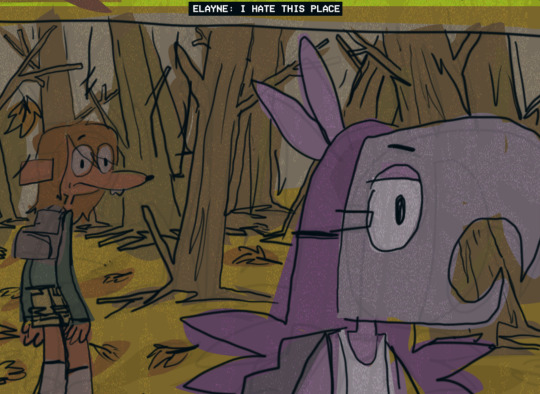
But the biggest struggle here belongs to Elayne, who, when the time came, clung on to the only thing she had, even as it turned out to be a remnant of that which hunted her. Elayne, who hates the forest that reminds her of her butterfly mind, strewn as it is with alien artifacts. Elayne, who sees the flip side of the question that pervades this series - “are we safe?” - in Vince’s casual contemplation. Where does this stuff come from - ynce iche, the horse figurines, the mall, anything? Who is in control? If it’s someone else - someone like Lord Vein or Lord Marrow - what makes them different from anybody else? And if no one is in control - or it’s something we have no hope of understanding - then how can we ever be safe? Where is the thing that hunts you - is it inside or outside?

For Elayne, the mask serves double duty - it keeps the rest of the world out, and keeps the threat of her inner ghosts contained. Her monologue in the dead of night (to Vince? to us? to no one?) is one of the richest psychological portraits we’ve seen in Crow Cillers, delivered in the sincere language of someone struggling with ideas bigger than they know how to articulate. In a world of fully-formed faces, she is a mask. She latches onto details, becomes unpleasant in her insistence on details, because details are all she has - there is no whole she can integrate these details into. She lacks a lens to understand.
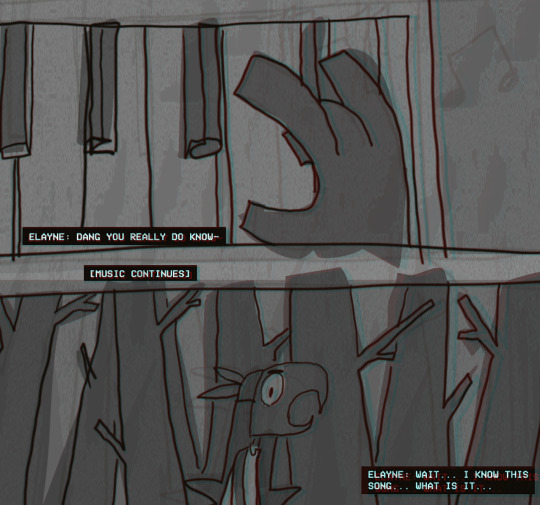
There is no unmasking sequence, of course, no reveal of the ugly duck as the secret beauty, no rearranging of their characteristics into a heteronormative ideal. Crow Cillers respects its characters too much for that. Instead, what gets rearranged is that mental debris, those contextless images that have haunted Elayne for so long, into a shape that, for a moment, seems to almost make sense. That piano, as we know, had been floating around for years before Elayne and Vince found it, and it was still there after they left. But they made it theirs, and no one else’s, when Vince played the first song that popped into his his head and it happened to click with Elayne. In that moment, she stopped being a pair of frightened eyes staring out from a mask, and became one of her own images, just for one day.
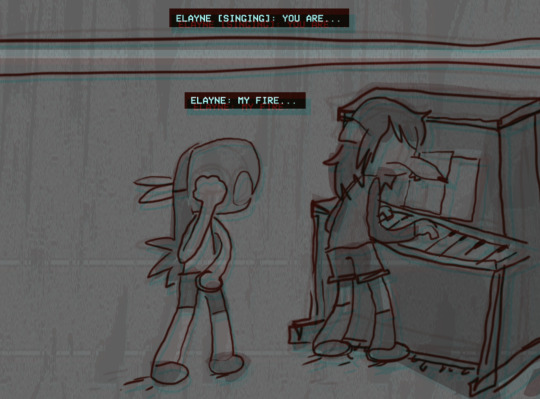

Humans are humans. For better or for worse, The Blair Witch Project was eventually given a lens to view it through, in the form of sequels, video games, and merchandise. Its actors were found alive and well, promoting their own wares. The general public recognized its merits as a horror movie, and set to work siphoning the horror out of it. But it has found perhaps its most heartfelt lens in this episode of Crow Cillers, which reforms its images not in the service of secondhand horror, but in a transformed narrative of hope and human connection. Horror, I think, comes at the expense of all other emotions - one by one, love, happiness, sadness, and anger fall at the hands of fear, as the movie works its magic. But the shots of forest and wildnerness that are spread throughout The Elayne/Vince Project seem full of emotion rather than stripped of it; they seem to cry out with imbued meaning from their silent stillness. I don’t understand what they mean, but I understand how it makes me feel, and that’s enough.

20 notes
·
View notes
Link
Welcome to the Wednesday Walk Around the Web, where we weave & wind through weblinks weekly. Hopefully you will find the links on offer amusing, interesting, or informative.
Author Kimberly Jones provides some crucial perspective that ought to put anyone tut-tutting about looters in their place. Too many of us know too little about racist atrocities like Tulsa and Rosewood, and it shows. (Meanwhile, while we’re talking about looting…)
In the meantime, we shouldn’t be afraid to call racism what it is, rather than “racially-tinged” and other such euphemisms that rhetorically smooth it over.
Amazingly, the Minneapolis City Council is now planning to dismantle the city’s police department, marking an amazing achievement by activists who have been advancing the idea for years. It should only be that this becomes even more mainstream going forward — the person who responds to someone having a mental health emergency doesn’t need to be an armed thug; the person who gets called about petty theft doesn’t need to be an armed thug.
Artist Adrian Brandon is the creator of Stolen, a series of portraits of black people murdered by cops, sketched but only partially filled in as he spends one minute coloring each portrait for each year his subject lived.
This Week in Bad Apples: One feeble excuse for police brutality is that it’s not a systematic crime against humanity, but merely the acts of “a few bad apples” who can be nudged with paid leave or reassignment, or otherwise fired and/or prosecuted (no matter how rarely the perpretators are actually charged by a grand jury, let alone convicted). Even if this explanation makes sense to you, Florida police departments are now actively recruiting any bad apples who want to join their bushels.
RIP Tiffany Eubanks, who died suspiciously soon after being detained by cops.
RIP Sarah Grossman, dead two days after being gassed by cops.
Last week we noted in awe how the K-pop fandom stonewalled a police snitching app that it got shut down entirely. Incredibly, the fandom is back at it, this time targeting 4chan neo-Nazis and QAnon cultists. Welcome to the revolution, K-pop stans.
Cops is canceled. Good fucking riddance. This is truly cancel culture at its finest.
I’ve been watching a whole hell of a lot of the Bon Appetit YouTube channel, as I’ve found it to be both great background noise when I’m working and a welcome dose of wholesomeness in these terrible times. However, like literally everything else, it seems the Bon Appetit YouTube channel is pretty deeply racist, as it seems the nonwhite staffers aren’t actually paid for their video appearances, and the dude who runs it has brownface photos currently making the rounds. Also, it took me embarrassingly long to realize that I don’t actually recall seeing any black people on the channel.
This Week in Radical Recontextualization: We’ve listened to a lot of genre-bending covers here at the ol’ Walk, with no insignificant time spent on retro covers of modern songs. Let us go, then, you and I, more retro than we’ve ever gone before — all the way back to Haddaway by way of the middle ages. This blessed channel doesn’t yet have many songs, but every one is a certified bop.
TheKnob is a volume control peripheral for your computer that combines the best in functionality with the wonderful tactile sensations of concrete. Plus RGB lighting, obviously.
One intrepid woman is officially suing every gay person. As her petition to the court names only “homosexuals,” I’m pretty sure that my pansexuality protects me from any potential cash settlement that may be agreed to by the defendants, but my fiance faces certain risk.
(Banner art credit)
0 notes
Text
Today I watched a large chunk of old Steven Universe episodes. I had the thought to rewatch the whole series from the beginning and do some blogging about it, primarily in light of the reveal in “A Single Pale Rose” to see all of the foreshadowing present and how that knowledge changes past events, but additionally to observe how the series laid out its various reveals and developments of both plot and characters throughout. Today though was largely a casual watch as I played mobile games at the same time, and really there was something quite nice about revisiting the earlier, simpler episodes even with my current knowledge of the series, but one particular moment in “Ocean Gem” stood out to me that I wanted to talk about immediately.
Lapis: “Don’t you know anything, Steven? Your friends, they don’t really care about other gems. All they care about is the Earth. But I never believed in this place.”
So with that quote in mind I have a lot of thoughts on how the story has proceeded from there (along with fandom speculation), how Lapis was in a way more right than we truly knew at the time, and how we still have so many questions left about gems, maybe about Earth, and certainly about Lapis Lazuli and her still not quite complete Tragic Anime Backstory. Put a pin in that line, we’re coming back to it.
I must say, I am genuinely glad that I have followed this show from the very beginning (literally from the premiere of the first episode). That is simply because I feel like I got to be fully on the ride of both myself and the wider “fandom” in terms of following the story, taking each reveal and trying to guess and speculate and theorize what things meant, and how such ideas turned out to either be correct or wrong (or be correct in ways that we did not expect to be correct).
The first two-parter of “Mirror Gem”/”Ocean Gem” was one of the huge game-changers for both story and the fandom, much like later two-parters like “The Return”/”Jailbreak” and the current source of chaos, “Can’t Go Back”/A Single Pale Rose.” While many episodes before Mirror/Ocean gem offered breadcrumbs in terms of details and world-building, these two episodes were a major shift in terms of information, how it recontextualized what came before, how it changed what was to come in the story, and in many fans’ theories with the show.
I say this because I think that now so far ahead (note “A Single Pale Rose” was episode number 146, Mirror/Ocean Gem was episodes 25 and 26), it can be hard to remember the shocks that episodes brought with them at the time. It was the first time it was explicitly confirmed that the gems were aliens who came from another planet. It was not a huge surprise, as many fans had guessed that, but it was still the first time it was fully confirmed. Additionally, many other fans had surmised that the “monsters” the crystal gems had been fighting in early episodes were also gems, and that also got confirmation, although the full nature of said monsters was still a ways away in revelation.
And of course there was the biggie – now in Steven Universe we are awash in gems, but Lapis Lazuli was the very first gem outside of the main three (plus the deceased “Rose Quartz”) that we met. And was also the first time it was really confirmed that not all gems are “crystal gems.”
(hence at the time there was a crapload of pretty damn annoying “omg the crystal gems are EVUL” nonsense going around that I’m glad is largely left to the past. Why yes, even back then any shades of gray introduced by the narrative meant that characters were now PURE EVUL instead of complicated people, which given that the show’s basic thesis statement of compassion was hammered in early on . . . yeah it felt like people were watching some different show for a long time. What’s now really hilarious was at the time there were PLENTY who took Lapis’s pain and imprisonment and blaming of the crystal gems at her word, whereas now it seems people will try to find excuses to make ANY of Lapis’s behavior into a sign that SHE’S pure evul . . . *sigh* different times indeed)
So now it finally brings me again to the quote that caught my ear today: “Don’t you know anything, Steven? Your friends, they don’t really care about other gems. All they care about is the Earth. But I never believed in this place.”
Now when this episode aired, this particular line of course fueled all kinds of speculation. For a while it wasn’t clear what Lapis entirely meant here. Then as other developments arose, plus learning more about Homeworld and other gems, this nugget sort of fell to the wayside. For myself, I took this not as OMG THE CRYSTAL GEMS ARE EVUL, but rather that Lapis was on the other side of whatever conflict this was, and that she wasn’t entirely correct in her biases – I saw no reason to believe her assertion that they “don’t care about other gems” and her “all they care about is Earth” was her simply being dismissive of something she didn’t understand and far from the full story.
. . . well here we are and . . . Lapis kind of was way more right that previously assumed. Way more right than MOST of us previously assumed, truly. Really, you want to talk massive foreshadowing? Here you go.
I mean wow, we should have seen it coming huh? We got this line from Lapis way before we met any other non-crystal gems or learned anything else about Homeworld, before anyone even mentioned “the rebellion” or “the Diamond Authority.” And . . . it’s not NOT wrong.
In terms of speaking personally about our surviving crystal gems (well . . . let’s say Amethyst and Garnet at least), it’s not fully true. Of course they care about other gems. And they believe in the principles that were PUBLICLY stated by the rebellion, principles that clearly were not invented out of nowhere given Garnet’s and Bismuth’s motivations for being in the rebellion – for the personal individual freedom of gems to define their own identities outside of their main “purpose” and freedom from Homeworld’s hierarchy and the tyranny of the Diamond Authority. That’s what Bismuth and Garnet, and presumably many other crystal gems believed they were fighting for. There were gems who held those values as true and worth fighting for.
Ha ha ha, but for the founder of said crystal gems, for the supposed rebellious “Rose Quartz” . . . it was right. All she cared about was Earth. That was only what it was for.
It was stated right there in “A Single Pale Rose” – what “Rose Quartz” wanted was for the other Diamonds to simply leave Earth alone. That was all. She wanted to live freely on Earth, shedding her born Diamond identity (ahhh, let us truly weep for poor poor Pink Diamond in her gilded cage). True, she also wanted Earth and its living organic inhabitants to be free too, and any other gems who lived on Earth, so I suppose that’s something.
But that didn’t take into account a lot of other beings (oh like say ALL THOSE HUMANS NOT ON EARTH? IN A ZOO? *PINK DIAMOND’S* ZOO). It didn’t take into account Homeworld gems and gems on other planets, who would not be afforded the freedom of the precious Earth, certainly not the off-colors and defectives that we saw are hunted and destroyed. It didn’t take into account the other planets that the other Diamonds would colonize, stripping those planets of all their life until they were left as dried-out shells. It didn’t take into account that it would do nothing to break the tyranny the other Diamonds held over all other gems and their empire.
To “Rose Quartz” none of that mattered, truly. What mattered was Earth. *Her* planet. If Earth had been freed and the Diamonds truly left it alone, she’d be happy, she’d have gotten everything she wanted (god how profoundly short-sighted to think that they’d simply accept the MURDER of another DIAMOND. Even if they had not the slightest personal feeling for Pink, tyrants cannot let others think them weak and able to be destroyed. To think they would have NO retaliation, NO punishment? Oh “Rose Quartz” the myths about you really weren’t true, you weren’t a great leader at all).
Who cares about all those other planets and other gems, right? Who cares about their freedom, their liberation? Fuck ‘em, not the “compassionate Rose Quartz.”
I wonder what her followers like Garnet and Bismuth would’ve done then, huh?
So in a way . . . Lapis kind of was right all along.
Now here’s a piece of the puzzle that still remains unclear – “But I never believed in this place.” After which Lapis says she “just wants to go home.”
HUH.
We still don’t know precisely why Lapis was on Earth in the middle of the war, to be poofed by Bismuth, and falsely taken prisoner by Homeworld forces before the final retreat/corruption by the Diamonds. The most that we have is one lyric from Yellow Diamond’s song to the mournful Blue Diamond – “What’s the Use of Feeling Blue” in “That Will Be All.” In the bridge where Yellow explains the uses that different types of gems have for their leaders we get this quick, almost tossed-off bit:
“An Agate terrifies/a Lapis terraforms”
Now plenty of people noticed and latched on to that lyric (YOU USED ME FOR LAND DEVELOPMENT) . . . but that’s all we’ve gotten. We’ve heard nothing else from other gems on what Lapises are “meant” for (for example, our resident Homeworld exposition-spouter Peridot confirmed for us things like Pearls being “fancy servants” and quartzes like Amethyst being big, strong warriors, but she does not offer insight into Lapises in the same fashion). We have not met any other Lapises than the one that we know as Steven’s friend. And Lapis herself is not quick to share information, particularly on past traumatic events for her, like the war.
And the thing is . . . our understanding is still woefully incomplete. To “terraform” a planet literally means to make a planet more resemble EARTH so that terrestrial (i.e. earth-based) lifeforms can live on it, generally referring to things like an oxygen-rich atmosphere, potable water, and land that can be farmed. In the context of gem life, this makes no goddamn sense. So we can assume that for gems, “terraforming” has a different meaning. The assumption then is that “terraforming” would be the precise opposite of what we think of it – it’s making a planet more hospitable to gem life, which would then have the opposite, adverse effect on Earth and its native inhabitants. A reasonable assumption based on the context? Absolutely. But still an assumption.
After all, there must be a reason for Lapis’s profound and unusual power. With her ability to control any and all water (including WHOLE OCEANS), on Earth or another water-based planet Lapis has the strength and power to present an incredible threat, even to a Diamond. But water is meaningless to gems. Gems are not organic matter, not water-based matter. They do not need water to survive in the slightest. Does Homeworld even have oceans? Even have water? We have still seen so little of it, but we can reasonably assume that since gems do not need food or water to sustain life, they did not need it to originate.
Since gems are made with specific purposes in mind, we can also reasonably assume that any other Lapises would have the same power over water. The only other gem we’ve seen exert any such power over water is Aquamarine, who can at least summon similar water wings in order to fly, but we don’t see her use any other power over water.
And as for powers relating to other organic-matter issues, the only gem that has displayed those is the gem of “Rose Quartz” – in actuality not a Rose Quartz at all but a Diamond. Steven inherited his mother’s truly odd and unique affinity for plants, even able to bring them to life like Steven’s watermelons. This too is still odd – while Rose’s, and by extension Steven’s, absurdly wide skillset is now largely explained by the fact that her gem was a Diamond and not a normal quartz warrior, this power over organic matter is still odd. Is this a “Diamond power”? A power unique only to the gem of Pink Diamond because Earth was “her” planet? A power that other Diamonds COULD develop if they bothered to do so? But anyway, that’s a tangent.
The point being, Lapis’s profound control of water is pretty singular among gems, and must be related to the reason why she was on Earth at all during the rebellion war since there is little reason to assume that Lapises are made with combat in mind (her build more resembles a Pearl, a decorative status symbol, than the wide and muscular Rubies and Quartzes that seemed to make up the bulk of the armies. Even her “weapon” is her water wings – a mode of transportation and escape, not a means to fight or even defend). The only other thing we have to go on is that she was a part of Blue Diamond’s court, due to both the familiar silhouette we see in the court in “The Answer” and her freakout in “Raising the Barn” when Steven specifically mentioned Blue Diamond.
So this brings me back yet again to “But I never believed in this place.” Why would we ever expect Lapis to “believe” in the Earth? Only crystal gems could be said to “believe” in the Earth. MAYBE the gems under Pink Diamond could as well, but that seems to be really stretching the definition of “belief.” What is Earth to the gems who served under the other three Diamonds but yet another colony? Or was there to be something more to Earth to them as well?
Did the crystal gems . . . try to recruit Lapis Lazuli at some point?
Why would Lapis phrase it in that way? “But I never believed in this place.” Why would any gem who wasn’t a crystal gem “believe” in Earth? Really, why would even those under Pink Diamond “believe” in Earth? Jasper, our one known antagonistic gem who was confirmed to be serving under Pink Diamond states no allegiance to Earth other than that it was the place she was made – her allegiance is to her Diamond, not her birth planet.
So . . . truly . . . what the fuck is the deal here?
Did the crystal gems appeal to Lapis specifically because of her power? Because they had a purpose in mind for her that would aid against Homeworld and the Diamond Authority (at the very least her powers would make her a fearsome warrior that Homeworld forces would likely not expect, again, Lapises are seemingly not designed to be fighters, but on a planet mostly comprised of water . . .)? Did they have even grander ideas of how to use such power for the purposes of Earth and the rebellion? Why else would Lapis even consider “believing” in Earth to be an option?
Or is there yet still more that we don’t know about gems and Earth? After the rebellion Yellow Diamond was more than happy to implant the Cluster and let it destroy the planet, destroy the site of no doubt their greatest failure, where one of the supposedly strongest of all gems fell. But was there something more before Pink Diamond was “shattered”? Did the Earth ever mean something to gems other than “Rose Quartz”? What in the world could that be?
As of this moment, post “Can’t Go Back”/“A Single Pale Rose” we have received information that drastically changes our understanding of the story of Steven Universe, of the rebellion and why it truly happened, and answered many questions that we had specifically regarding “Rose Quartz”, Pink Diamond, and Pearl. But there are still plenty of unanswered questions. And also at this moment, Lapis Lazuli’s whereabouts are yet again unknown.
When we see Lapis, she is so often trying to leave, trying to escape, trying to find true freedom. She thought maybe it could have been at Homeworld, but when she does return there it has “changed.” Changed in a way that disturbs and terrifies her, in a way that she does not wish to return there again. Also when we see Lapis, we tend to get major revelations. Her first appearance in the show marked a major turning point. Her most recent appearance did as well, since if Steven had not gone to see her at the Moon base, he would not have had that disturbing Diamond dream that led him to question Pearl and then receive the revelation of his true gem origins.
But of course, traumatized Lapis, fearing a Diamond, fled again, unaware that she had been happily sharing the presence of a Diamond gem for quite some time.
Lapis still truly has no allegiance. She never had allegiance to Earth or the crystal gems. She seemed to have allegiance to Homeworld when she first appeared in the show, but that was quickly broken once she actually returned there to find it drastically changed after her thousands of years of imprisonment. Even when she takes up residence at the barn, she is not truly aligned with the crystal gems. Perhaps for a while she was aligned to her family of Peridot and Pumpkin, but at the threat of potential Diamond action, that was easily broken, even as Peridot stated her faith in Lapis’s power to fight for the Earth. And still she continues, travelling alone, not trusting herself nor really any other team, even those she cares for like Steven and Peridot.
It could just be a coincidence that Lapis is close to such big revelations in the story. After all, her dark and moody countenance leads her to compliment the heavier revelations quite well. But maybe there will be more to Lapis and the endgame than simply really awesome ocean powers.
“But I never believed in this place.”
For what reason would she have even considered that a possibility?
#Steven Universe#SU spoilers#meta#Lapis Lazuli#so this is a LONG-ASS POST#my usual disclaimer here that I am far from a professional SU theorist#so don't come here expecting answers as usual I only have more questions#this is like really INDULGENTLY long
101 notes
·
View notes
Text
To Sing or Not to Sing in Disney Live-Action Remakes
https://ift.tt/eA8V8J
Since Disney began rolling out live-action adaptations of its animated classics in 2015, the past five years have seen roughly one new release per year, each one confronting the question of whether or not to attempt the musical numbers—arguably the most emblematic element—without the aid of animation and trained singers.
In the case of movies like 2020’s live-action Mulan, many directors have eschewed the earworm-y songs and complex musical set pieces altogether, with the argument that it’s simply too difficult to manage the tonal shifts from stories that have become a bit darker in translation with songs that are bright and palatable enough for young audiences. But even those movies that have taken direction from successful movie musicals have not always recaptured the magic of Disney musical numbers. Here, we analyze which movies were right to ditch the music, and which get points for trying.
A note on judging: I defined “musical numbers” as featuring singing and some form of choreography, so snippets of songs were out. I didn’t include any ending credits songs (a common factor among these adaptations) in my count since they’re audio-only. Each movie I ranked by High/Middle/Low Notes, which is by no means by any professional musical standards and should be pretty self-explanatory.
Cinderella (2015)
Musical Numbers: 0
Success: High Note
As the first live-action adaptation, there were of course questions of whether Kenneth Branagh’s Cinderella would have its actors crooning “A Dream is a Wish Your Heart Makes” or CGI mice working along to “Cinderelly Cinderelly”—whimsical moments for the kiddos, but tougher to suspend disbelief for when it’s real people in front of the camera.
“I don’t know how to write that kind of thing really,” screenwriter Chris Weitz told Cinema Blend in 2015, “and I think that that’s something that, for me, it’s much easier to do that with an animated film. That’s why many of the Disney animated films are musicals. With live action, sort of getting into and out of those moments of song is really super tricky.”
Instead, Weitz and Branagh opted to score the iconic melodies—which are just as recognizable in instrumental form as sung—to key emotional moments. Lily James’ Cinderella also receives a new mantra: have courage and be kind. It’s a rough translation of the lyrics from “A Dream is a Wish Your Heart Makes”: no matter how your heart is grieving / if you keep on believing / the dream that you wish will come true. But instead of it being a subconscious desire that gets solved while one snoozes, the mantra reminds the heroine to consciously hold strong to her faith in the goodness of other people, and she will eventually be rewarded for that belief.
The movie reflects this in how it recreates the fairy godmother’s (Helena Bonham Carter) “Bibbity Bobbity Boo” scene without the actual song (it plays over the credits) but maintaining the whimsy. Magic replaces music, and the movie does not suffer for the lack. (Let’s also not forget that Ever After, the beloved 1998 adaptation starring Drew Barrymore, didn’t need music to be affecting, either.)
Crucially, it is Ella’s singing that saves her: The king’s men are about to leave her home, having failed to make the glass slipper fit either of her stepsisters, when her voice comes drifting from the attic—thanks to the mice, who may not be able to sing, but who are still clever enough to open the latch on the window. Her crooning of the English folk song “Lavender’s Blue” (when I am king dilly-dilly / you shall be queen) alerts the men to her presence, and is how Kit identifies her even before the slipper meets her foot.
This Cinderella has to do (almost) everything herself, from helping out with chores even before she is forced to wait on her stepmother and stepsisters to charming the prince to securing her own freedom, and is the better for it.
The Jungle Book (2016)
Musical Numbers: 2
Success: Low Note
“What’s a song?” young Mowgli asks before one of The Jungle Book’s two main musical numbers. “You never heard a song before?” Baloo (Bill Murray) gasps. “Everyone’s got a song.” And then he jumps—both literally, as the CGI bear, and figuratively, for the actor—into “The Bare Necessities.” It’s not a skilled rendition by far, but compared to the uncanny auto-tuning in other entries, it actually sounds like him.
The same goes for “I Wanna Be Like You,” wherein Christopher Walken channels his best King Louie: It loses the hyperactive energy of the animated version, but it’s undeniably him doo-wopping his way through the song. Both numbers demonstrate how The Jungle Book ultimately succeeds over later film The Lion King (both directed by Jon Favreau): The CG animals at least resemble the people voicing them, so even though they’re imperfect, they’re still personal.
Beauty and the Beast (2017)
Musical Numbers: 10
Success: Middle Note
The only thing that saves Beauty and the Beast is “Gaston.” This adaptation beats the others in the musical numbers count, but almost all of them fall short of both the animated original and the Broadway musical. (The new numbers expound on the former, interestingly, with very little overlap with the latter.) This video essay from Sideways best illustrates the movie’s fatal flaw: Casting actors who are not singers as the leads. Emma Watson’s Belle has one of the most recognizable Disney “I Want” songs, and her voice is entirely flattened out by auto-tune. In songs like “Evermore,” where Dan Stevens is supposed to convince us that there’s still a man hidden beneath the Beast, he’s stripped of any longing.
The actors who are trained singers, like Audra McDonald as Madame de Garderobe, or who have proven themselves in movie musicals previously, like Ewan McGregor as Lumière, get too little screen time. “Be Our Guest,” charmingly mimicking the entire hospitality industry in its attempts to change with the times with clever new lyrics and dazzling CG animation, winds up feeling like a heartless attempt at copying the original’s magic. The best way I can sum up Beauty and the Beast’s music overall is that the opening prelude theme has more character than half the numbers.
Thank goodness, then, for “Gaston.” It arrives at the perfect point to perk up both its boorish antagonist (Luke Evans) and the audience. That’s mainly due to Le Fou (Josh Gad, bringing a mix of his Broadway experience and his goofy Olaf-from-Frozen charm) and the slyly meta details that he is literally paying everyone in that tavern to start singing Gaston’s praises. As Le Fou keeps surreptitiously tossing coins to ladies to sing over Gaston’s muscles, to men to dance around and mock-duel him, and to the chorus of patrons to keep generating new refrains, Gaston eventually is encouraged enough to take the lead and keep this drinking song-slash-tribute going on ad infinitum until Maurice (Kevin Kline) bursts in. Well, all good things must end.
Aladdin (2019)
Musical Numbers: 5
Success: High Note
Guy Ritchie’s adventurous adaptation is the most successful of the bunch, even though it too falls short of being entirely as convincing as one of the Genie’s schemes. The movie’s stubborn adherence to Robin Williams’ rendition of “Friend Like Me”—again, the Sideways video has more in-depth analysis—does a disservice to Will Smith, who unlike the other actors in this list does have the chops to take on this iconic role. It’s especially baffling that there is a different cover, with Smith in his element, playing over the credits that very much slaps.
It’s not as if Ritchie treated every element of the animated Aladdin as untouchable: “One Jump” gets recontextualized as Aladdin (Mena Massoud) touring Jasmine (Naomi Scott) through the city. As she tags along on his petty thievery, skilled sleight of hand, and ingenious misdirection, she gets to know the street rat better than any dialogue could have achieved. That number is shot a bit frenetically, which comes through in the spoken-word style of singing, but it’s still undeniably fun.
“Prince Ali” has this same gleeful energy, and gives the Genie a little more wiggle room. There’s a great “drop the beat” moment partway through that could have been ad libbed or could have been built in, but either way it’s completely unexpected. Several dance sequences conjure A Knight’s Tale in their anachronistic style but still strengthen the movie by showing just how much Genie can make people do his bidding in service to his master.
Alas, “A Whole New World” is entirely forgettable, and shot so dark that you miss all of the details that made the magic carpet ride such a thrill for the princess and for audiences. Ditto Jasmine’s “Speechless” number and its tragic refrain. If the Broadway adaptation taught us anything, it’s that you don’t mess with a good thing.
The Lion King (2019)
Musical Numbers: 7
Success: Low Note
Finally, the Disney movie that asks why anyone would think a remake is necessary. Without the aid of stunning animation, “Circle of Life” and “I Just Can’t Wait to Be King” fall short of the epic scale of their predecessors, so both early numbers are just underwhelming. Though Chiwetel Ejiofor is a great choice for the voice of Scar, it’s clear that director Favreau and collaborator Tim Rice did not know what to do with “Be Prepared.” Running into the same issue of tonal shifts, they adjusted it to be part spoken-word monologue, part song; but the number itself is so confused that one might get halfway through it before realizing where in the movie they’re supposed to be.
The CG-animated animals lose all character, and it’s incredibly uncanny to watch their mouths open and close without enunciating lyrics. Auto-tuning flattens out supporting characters like Seth Rogen’s Pumbaa, though somehow his and Timon’s (Billy Eichner) cover of “The Lion Sleeps Tonight” is still incredibly charming. And then there’s “Can You Feel the Love Tonight.”
Donald Glover (a.k.a. Childish Gambino) and Beyoncé Knowles were perfect casting for adult Simba and Nala, but the tracks they’re given to work with just don’t match the energy of the original. If you’re going to tone down every single song to either meet an untrained singer where they’re at or to match the other newly low-key numbers, then why have Beyoncé at all?
Elton John’s GQ interview around the film’s release better delves into all of what went wrong with the soundtrack, but even just this quote is pretty damning: “Music was so much a part of the original and the music in the current film didn’t have the same impact. The magic and joy were lost. […] I wish I’d been invited to the party more, but the creative vision for the film and its music was different this time around and I wasn’t really welcomed or treated with the same level of respect. That makes me extremely sad. I’m so happy that the right spirit for the music lives on with the Lion King stage musical.”
Mulan (2020)
Musical Numbers: 0
Success: Middle Note
Five years after Cinderella’s release, the live-action Mulan cycles back to its formula—doing away with all of the songs in favor of instrumental tracks—out of the same considerations of tone.
“It will not be traditional ‘break into musical’ [songs],” producer Jason Reed explained to Collider during a 2018 set visit. “They’re not going to stop their workouts to do a big musical number to camera. However, there are a number of songs that are iconic for the movie and tell a great version of the story and they are very helpful to us in how we’re putting the movie together. It gets a little easier in animation to keep the tension and the reality in place and still have people break into song and sing to camera. We made the decision that we wanted to keep the world—even though it’s a fantasy—more grounded, more realistic so those emotions really played and the threat is very real. So we are using music in a slightly different way.”
Unfortunately, Mulan tries to have its cake and eat it, too, when it comes to the animated film’s beloved soundtrack. A scene with Hua Jun and the other men at the training camp puts the lyrics to “A Girl Worth Fighting For” into their mouths as dialogue, except it comes out jarringly sing-songy. There’s a throwaway line about making them into men that should have just been dropped; it’s mister I’ll make a man out of you or it’s nothing.
But the biggest misstep is with “Reflection”—which, to be clear, is transformed from humble “I want” song into epic instrumental strains backing sequences in which Mulan first disguises herself as Hua Jun, and then throws off her disguise to triumphantly ride back into battle to save her fellow soldiers.
There’s just one big problem: Because Mulan never sings “Reflection” and articulates her ambivalence about the face staring back at her, it doesn’t actually mean anything to the plot of this movie when the refrain plays. That doesn’t stop it from tugging at the heartstrings, but that’s solely a chemical reaction based on music ingrained in our brains twenty-plus years ago. Having two covers of “Reflection”—Christina Aguilera recording a new version, and Liu singing the Mandarin version—play over the credits fills in those lyrics for anyone who doesn’t know them, but it’s retroactive.
Interestingly, Disney brought back Christina Aguilera to record a new number, no doubt trying to tap into audiences’ nostalgia for her rendition of “Reflection.” Personally I would have loved to see Lea Salonga return for “Loyal Brave and True,” but Disney was banking on its former Mouseketeer and pop star to further tie audiences to the original.
What Reed had wrong was that the animated Mulan did manage to balance the drama and grim reality of war with tension-breaking musical numbers. We need look no further than “A Girl Worth Fighting For,” the soldiers’ cheery, jibing ode to their rewards for victory, abruptly stopping short when they come across the burned-out village—a stark reminder that they are nowhere near the end of the war. Now, this live-action Mulan clearly wasn’t set up for that same tone-shifting, but it still tricks emotional resonance out of disconnected musical cues.
Mulan is available now on Disney+.
The post To Sing or Not to Sing in Disney Live-Action Remakes appeared first on Den of Geek.
from Den of Geek https://ift.tt/2Zar8C0
0 notes